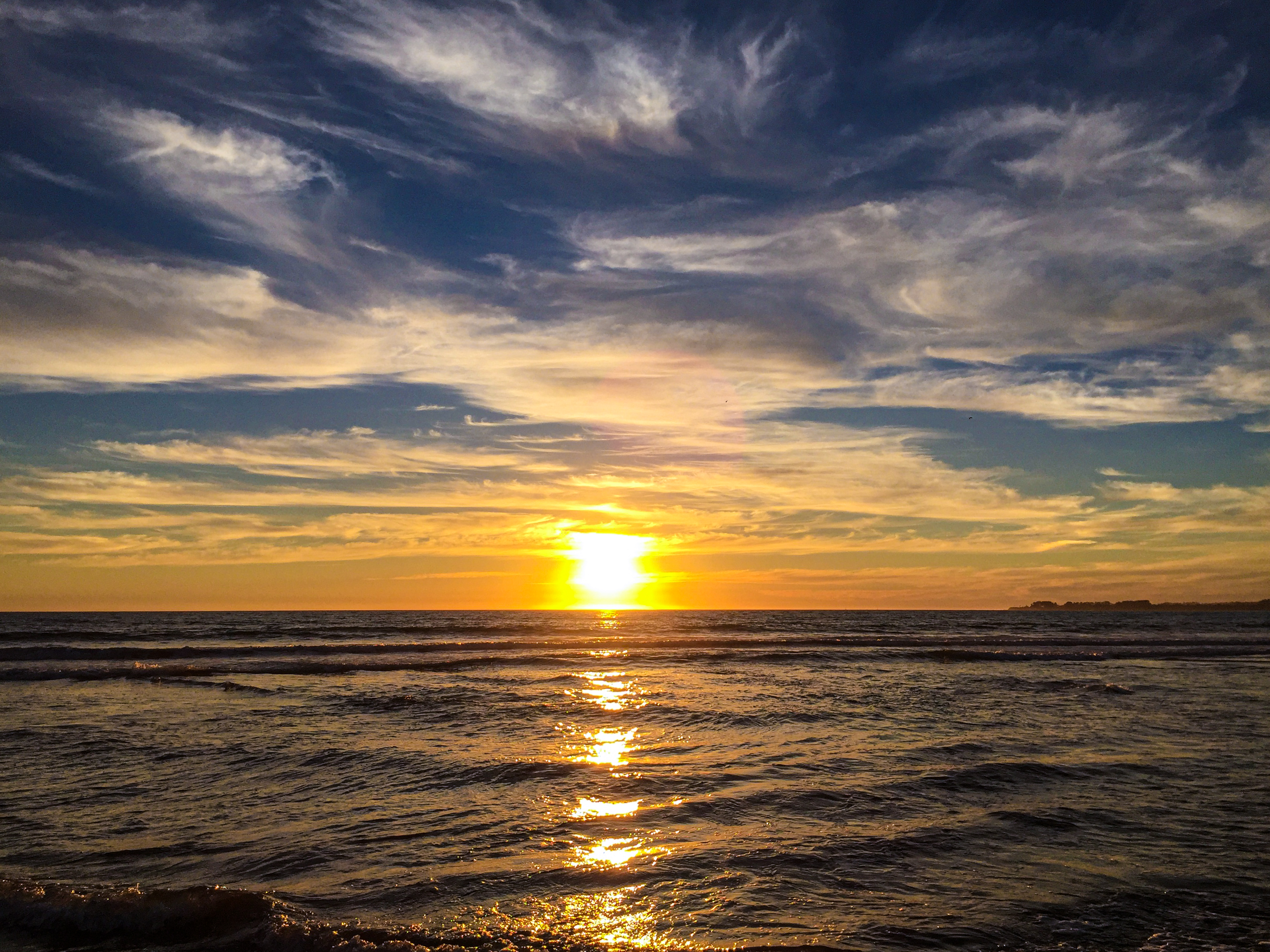Looking for the Dog
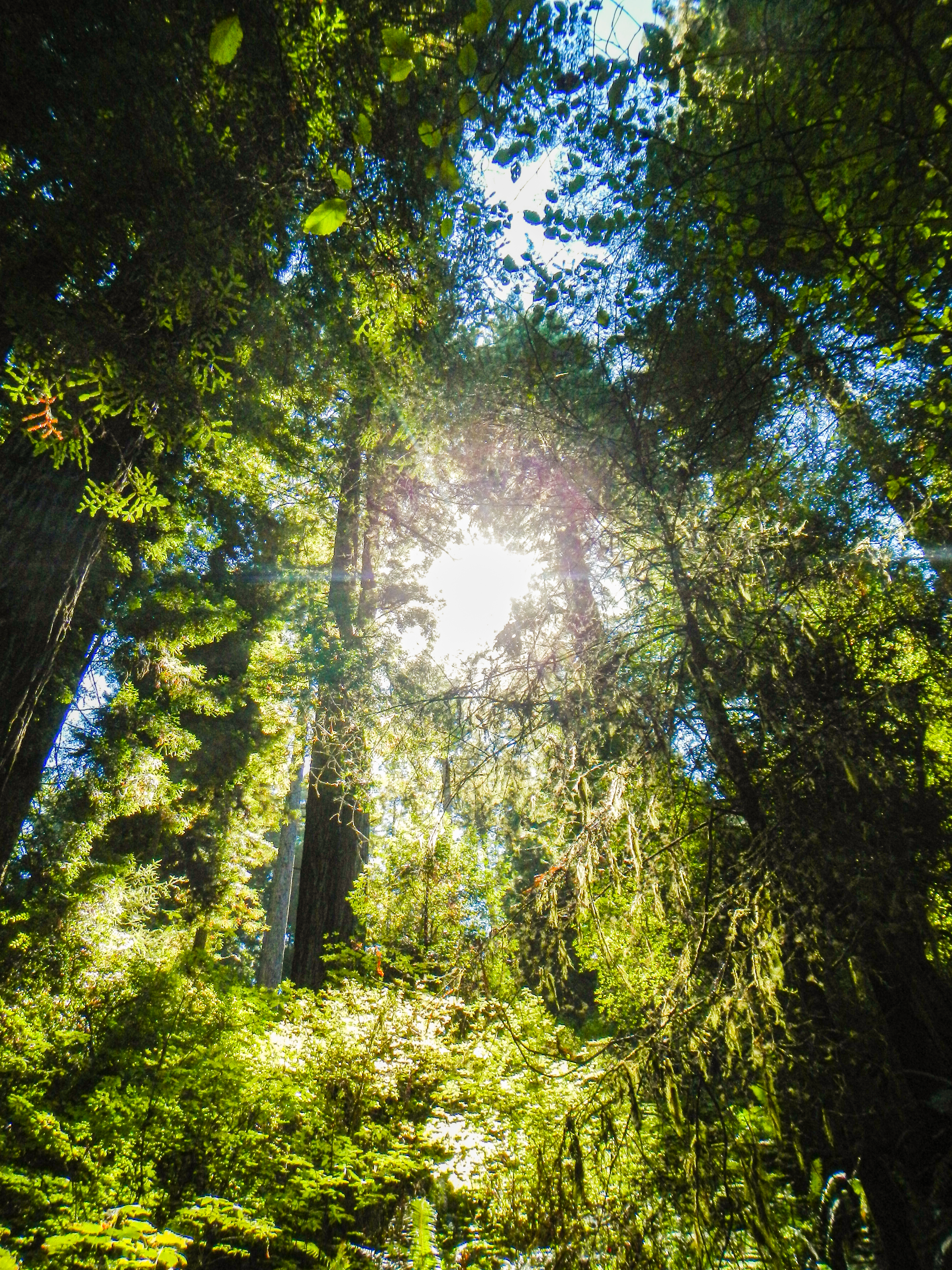
Jeff Shainline
2000-2003

2000-2003
Is whirlwind dirt the earth or the sky? Is our breath the first atmosphere? Discs of gas realize spheres. Dust in clouds starts the rain. Wind kneads seeds into crust; it's been this same soil since the planet calmed to bead.
People die, not long to dirt—except the bones: stone deposits. The earth works the body in. Grasses build of it. In our gut it turns to us. We eat our ancestors, then we die, cremations received by the sky. It becomes apparent that we were rain seed and tree feed the whole time.
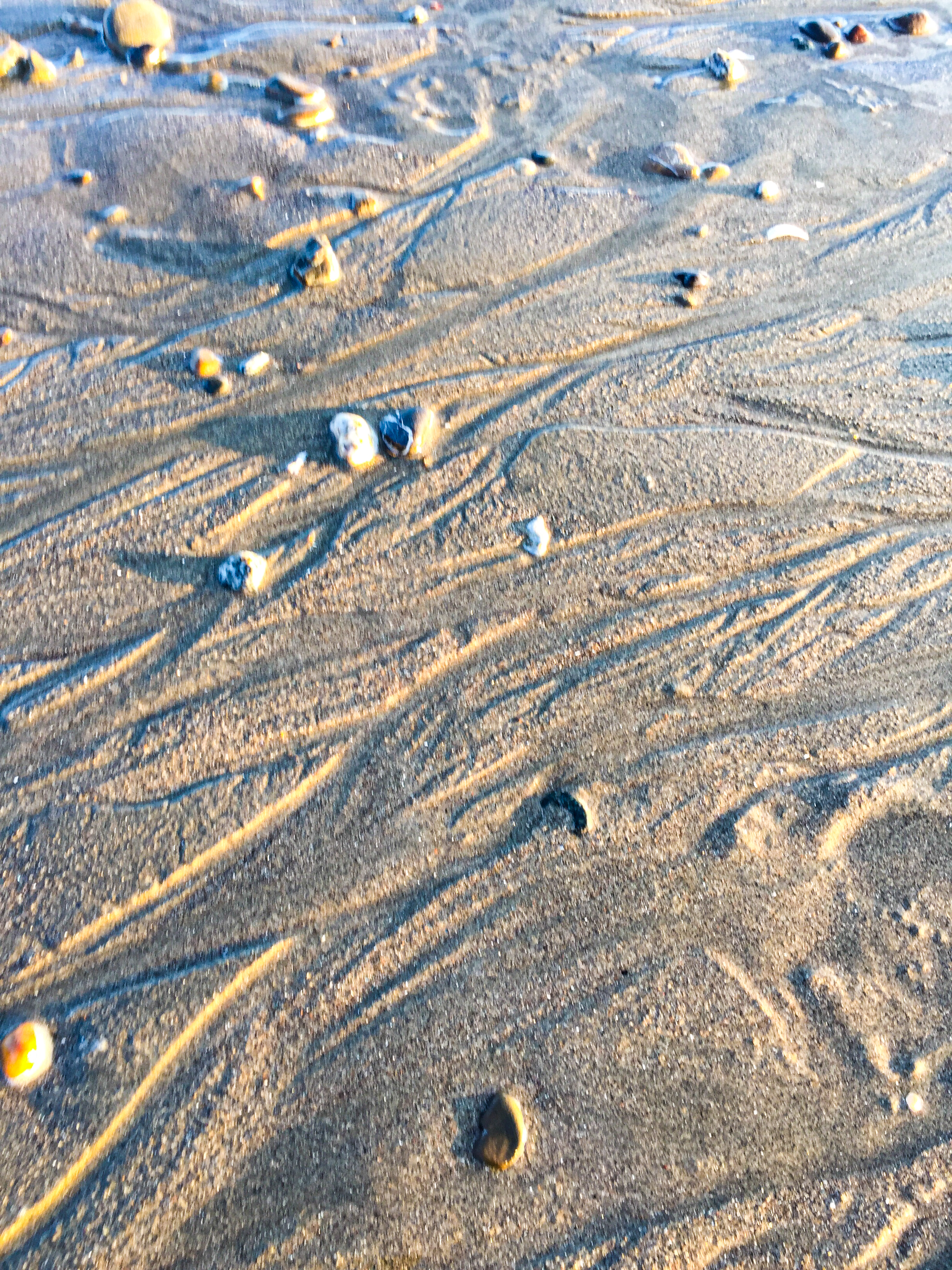
Who are we? Proteins fall in line, nurtured by an aqueous womb. To form what? Faces, hands, wings, venom—structures necessitate operation. The mind: a relationship of cells cooperating to decide, eat this or don't, fight or flight, what is god?
We're alive to see technology revolutionize the art of cereal box design! We've stopped mentioning that the picture is enlarged to show texture. And for some time, we've been able to shape bars of soap like roses.
Could we survive if there were no such thing as Recommended Daily Intake? How many years of Christmas gifts does it take to fill a home? Thank god for landfills. Imagine the displeasure of drowning in wrapping paper.
Who are we without our faiths? What if we believed in nothing? Would we eat well rounded meals? Does a nihilist experience awe? Do they search for cancer cures? Do we spend these lives perplexed by the extraneous? Should we put all we own on the curb with a sign reading, "Free"?
Where is the middle ground? Which is more sacred: water or forgiveness of sin? "The city tap is no good," it's often complained. There is a market for purifiers.
Do you believe in a big blast at the beginning? Do you believe the uncomfortable fate met by Christ is correlated with forgiveness of your sins? Consider evidence on all sides. Whatever beliefs form your foundation, your skin will still flake to dust and you'll still be hungry if you work all day.
Faiths are saccharin: make you think you're eating. Conceptions of living after detract from the moment. Conceptions of genesis dilute eternity. But who are we without our faiths?
Who are we, all points of view aside? We take walks through the neighborhood, pick up dead bees to admire their intricacy, then keep them in a jar on the dresser, as if there were nothing intricate to see there.
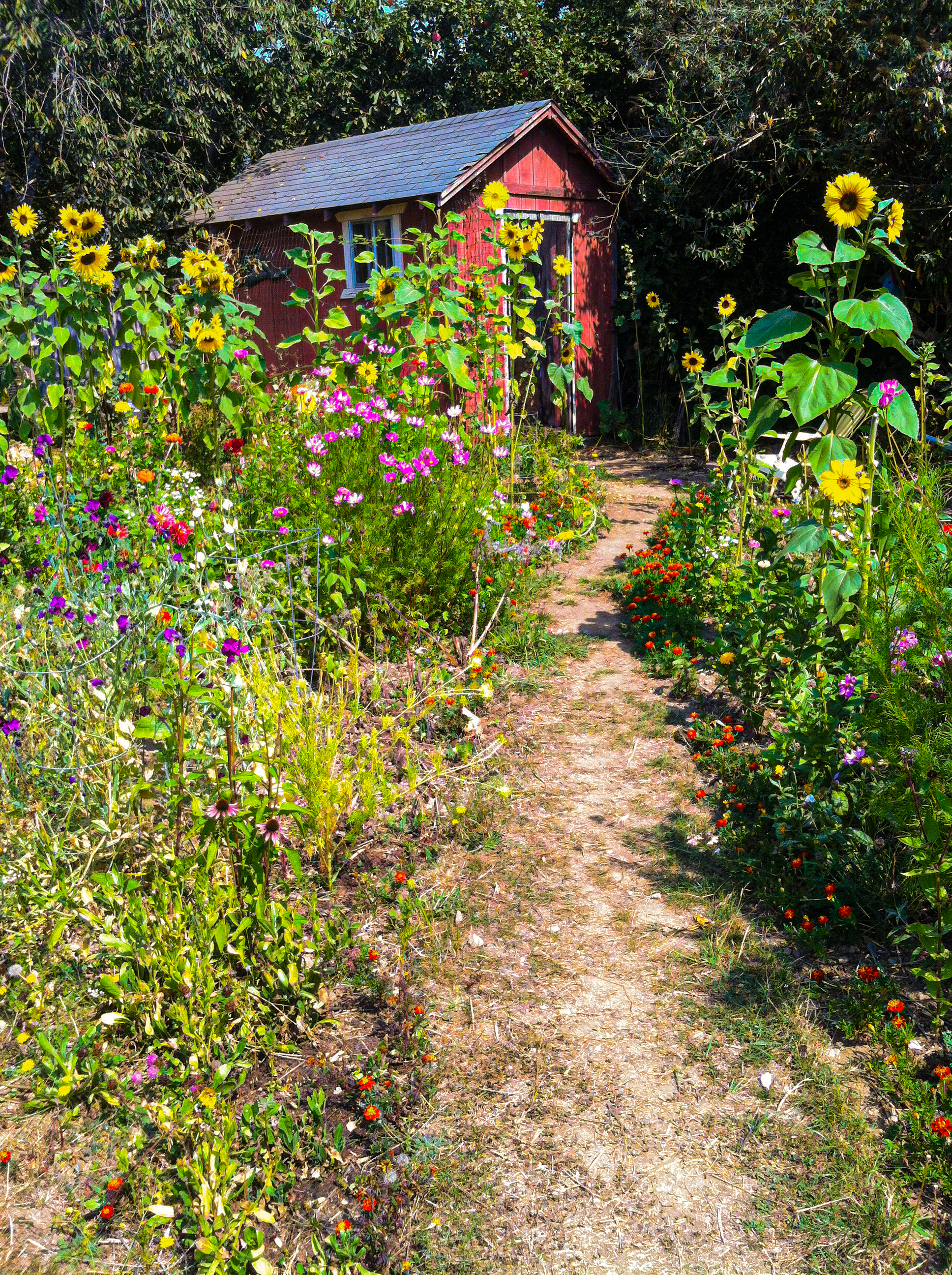
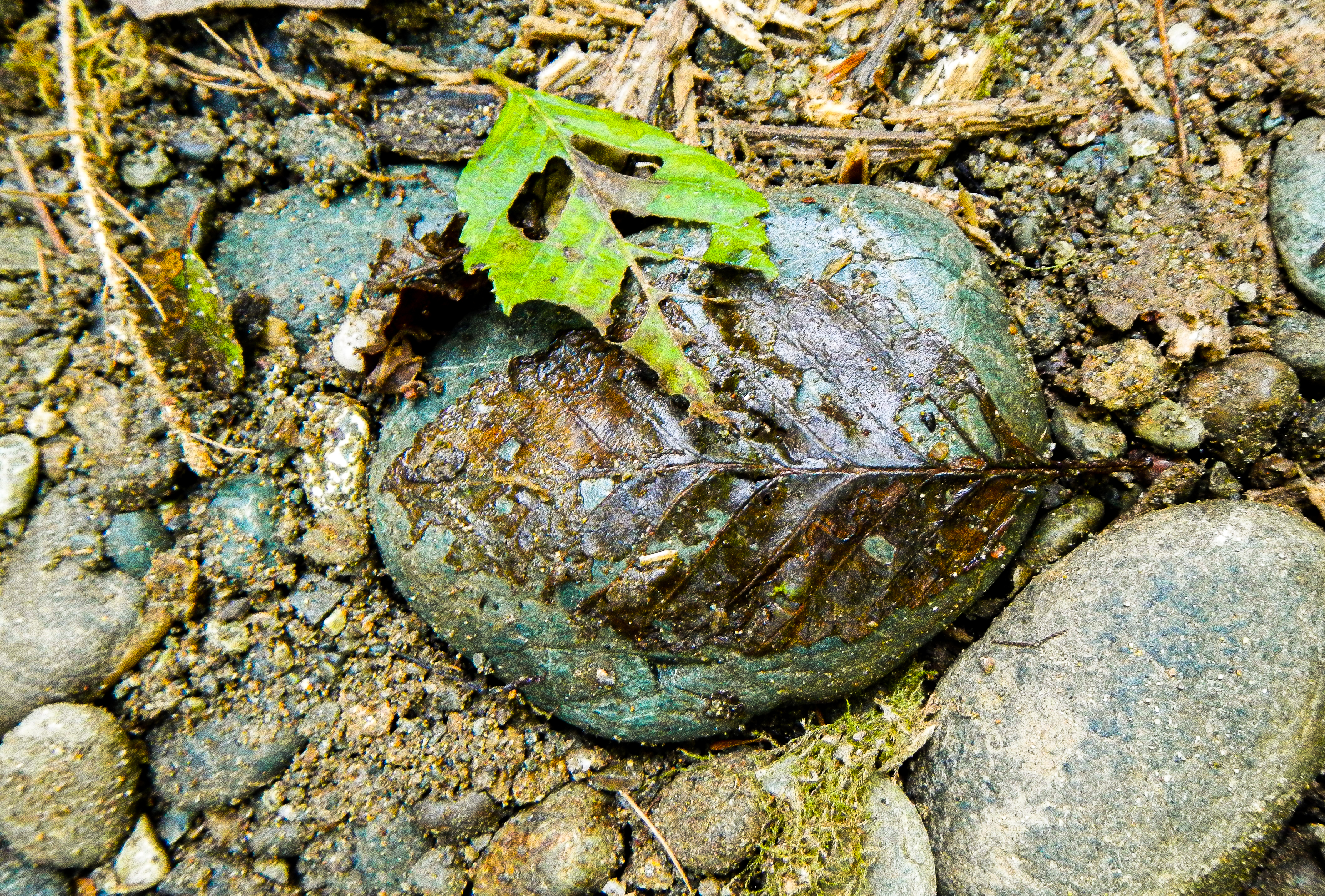
My view isn't crisp, cataracts in my consciousness. I say, "Humans are a possibility of the universe," and let it become mundane. Divine is that we're possible, and that a fourteen-billion-year history has been endured by each particle of our being. Sand in a hand's palm, ours are eolian souls. Such is skin. What do I do with it?
$$ 0 \le me_{\mathrm{now}} \ll me_{\mathrm{potential}} $$The sun has just set. The sky grades from the sable east to the blue glow of the coast. I walk through the plaza. People are gathered around the doors of bars. Conversations sound exciting. At the edge of town, I take a dirt path into the marshes. Cattail brush lines the reflecting pond. Bullfrogs sing to the opposite sex. We all radiate like sound, intensity fading by the reciprocal of the radius squared. There goes our energy, the wholehearted fizzle toward entropy. The path leads across the old railroad tracks. Calm birds send subtle ripples across the water. My boots grind dust to finer dust. I sit down on a log overgrown in brush. From here I see the bay.
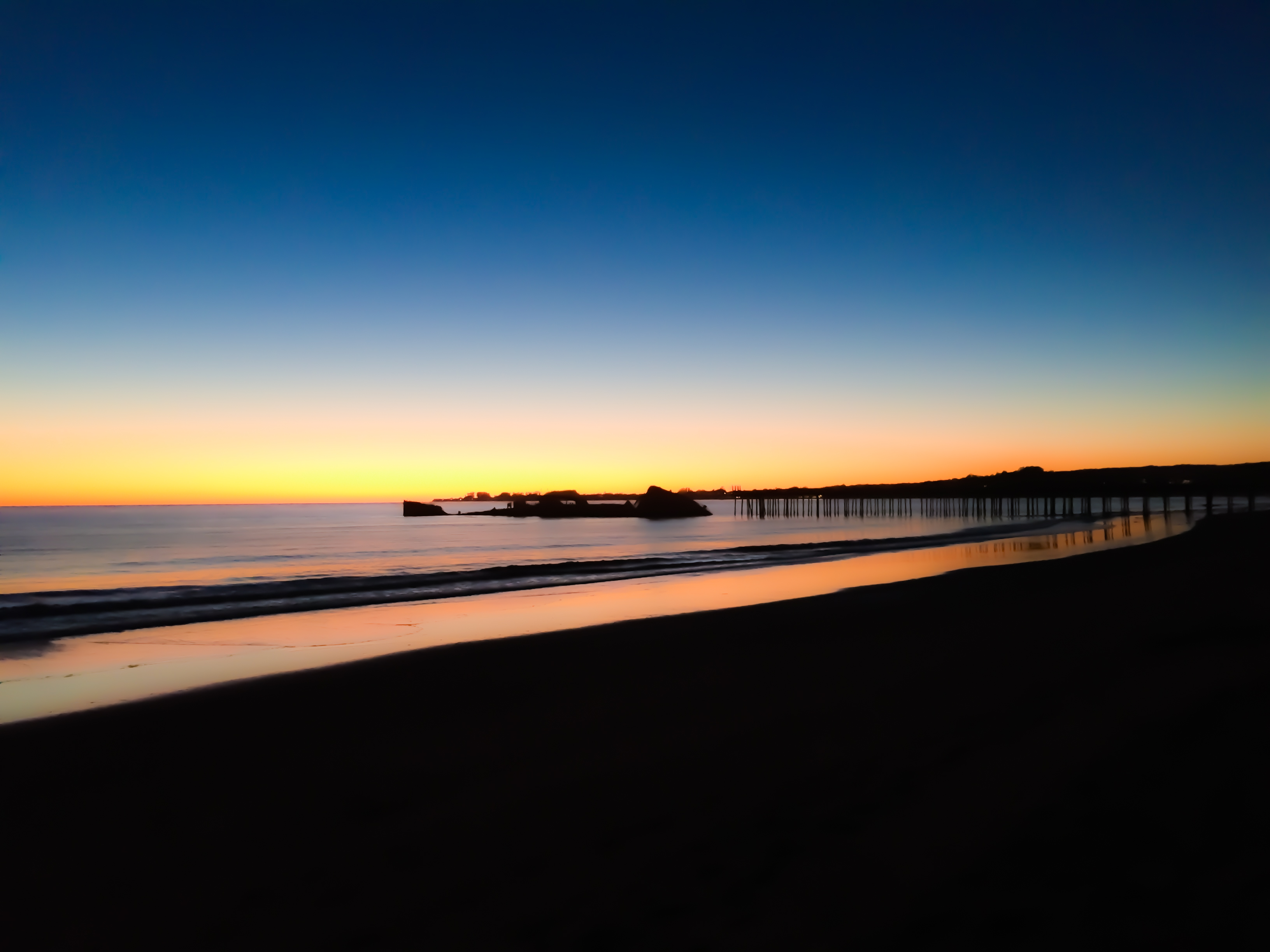
West: half a planet of trembling sea. East: there we go along the 101, tiny mites existing because we can. Do I feel like a particle of matter bound to a sphere, a tiny person over a tiny time, a microscopic balancing act?
Nebulae of moisture hang between me and the stars, lamp-lit by the moon. The landscape reaches out and wraps around on itself. Water collects in the coincidental depressions. Rain soaks the sand slopes. Was this planet alive before its first cell child? A plant arises and needs the sun. Was that thirst there before, now realized in an organism's form?
An asteroid around the same star collides. The two are fused and from their gas a satellite is born, a moon to always witness and be witnessed by the evolving life. There's the moon now, the reflecting light, the stone that rides the planet earth. Moon, who are you? Not the imaginary face. Not the make-believe deity. What are you? We cast the sunlight back, same process as yours, but with rain, evolution and the capabilities of human. Voice allows the sun through the earth and back, and had you a sea, you might have a being to rise from your insides, and let you know the yearning. The cattail brush along the waterline—we are all of that same reach.
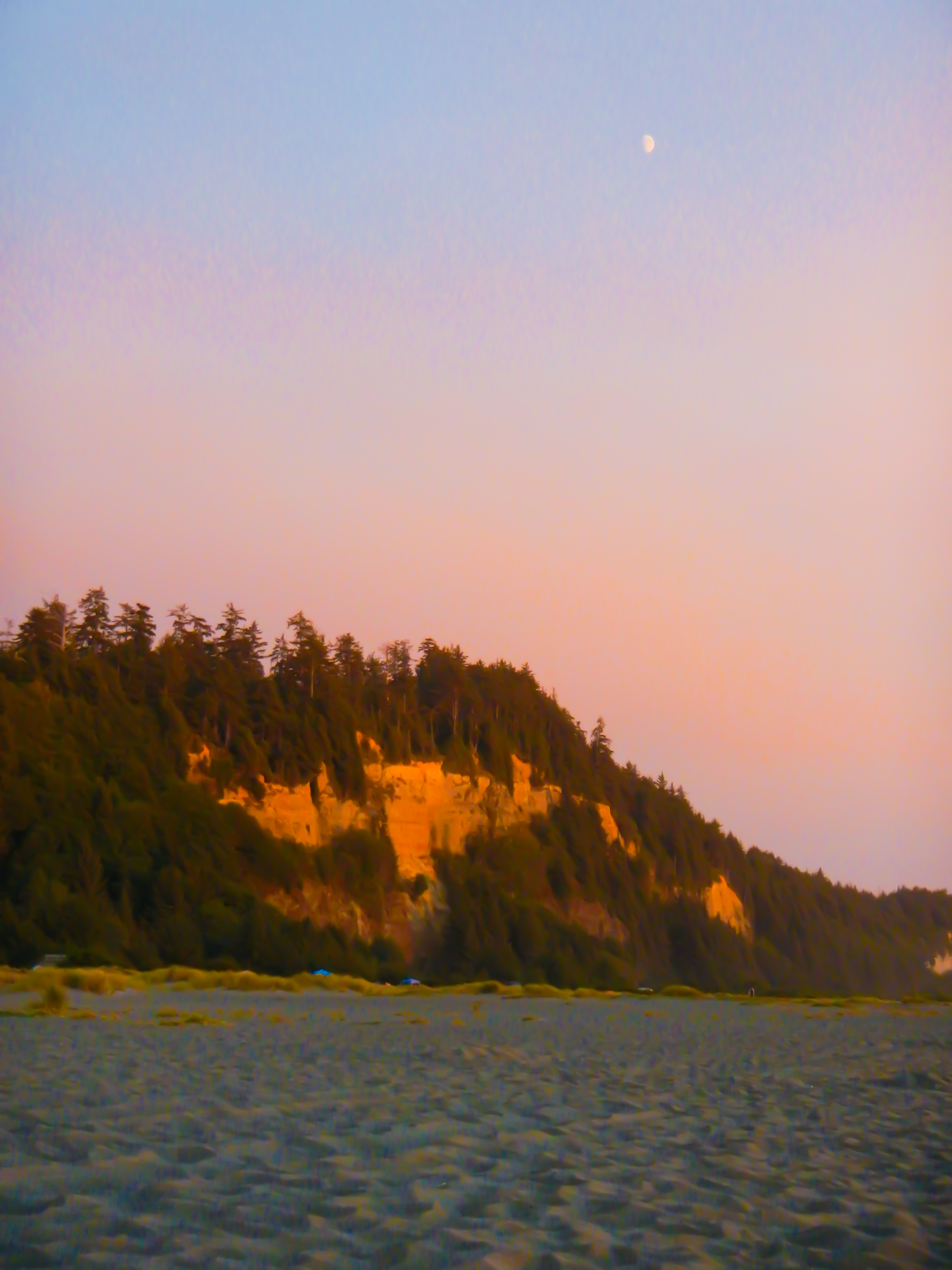
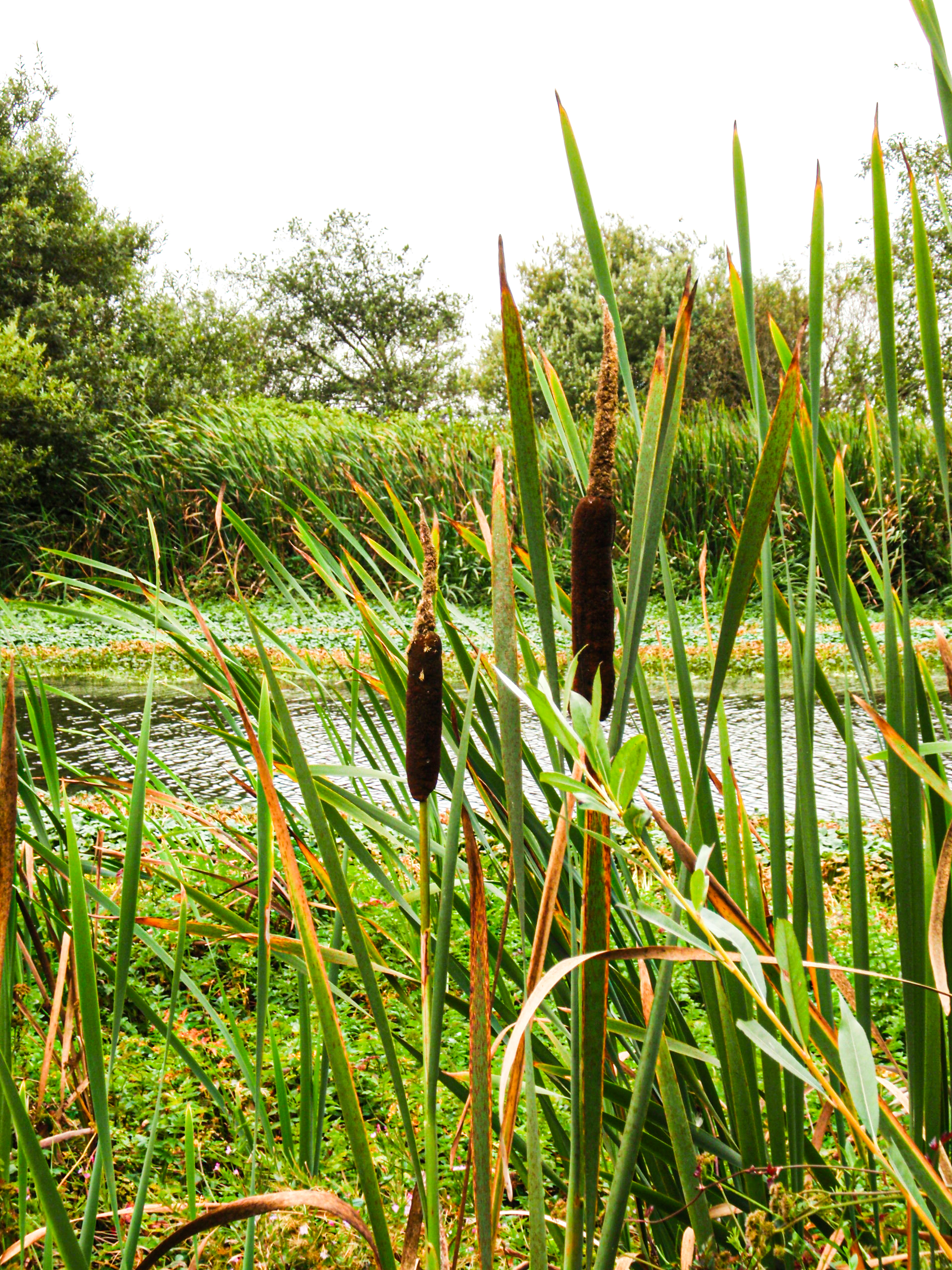
I walk the village streets. Condensing spirits radiate, chalice fires in the sky, and I'm remembering a time I spilled my milk as a child. It started me crying, though the emotions came before the incident. It was there at the dinner table, the enigmatic something that cannot explain itself, but sobs of the attempt.
I see myself naked, but neither society nor the climate permit. I'm always aware of my skin, the fabric sand that came before logos and loose-fitting images. Our pressures of existence back and forth are like a star. "What for?" we ask the star.
"I don't know," it says, "but if I could wrap myself a little tighter around this gas, force this core to something denser—"
We tell the star, "We'd love to watch you try, watch you burst at crescendo, then glitter down into flecks that patiently shape themselves into arms that reach back with telescopes and passions that expose themselves when we've spilled our dinner's milk."
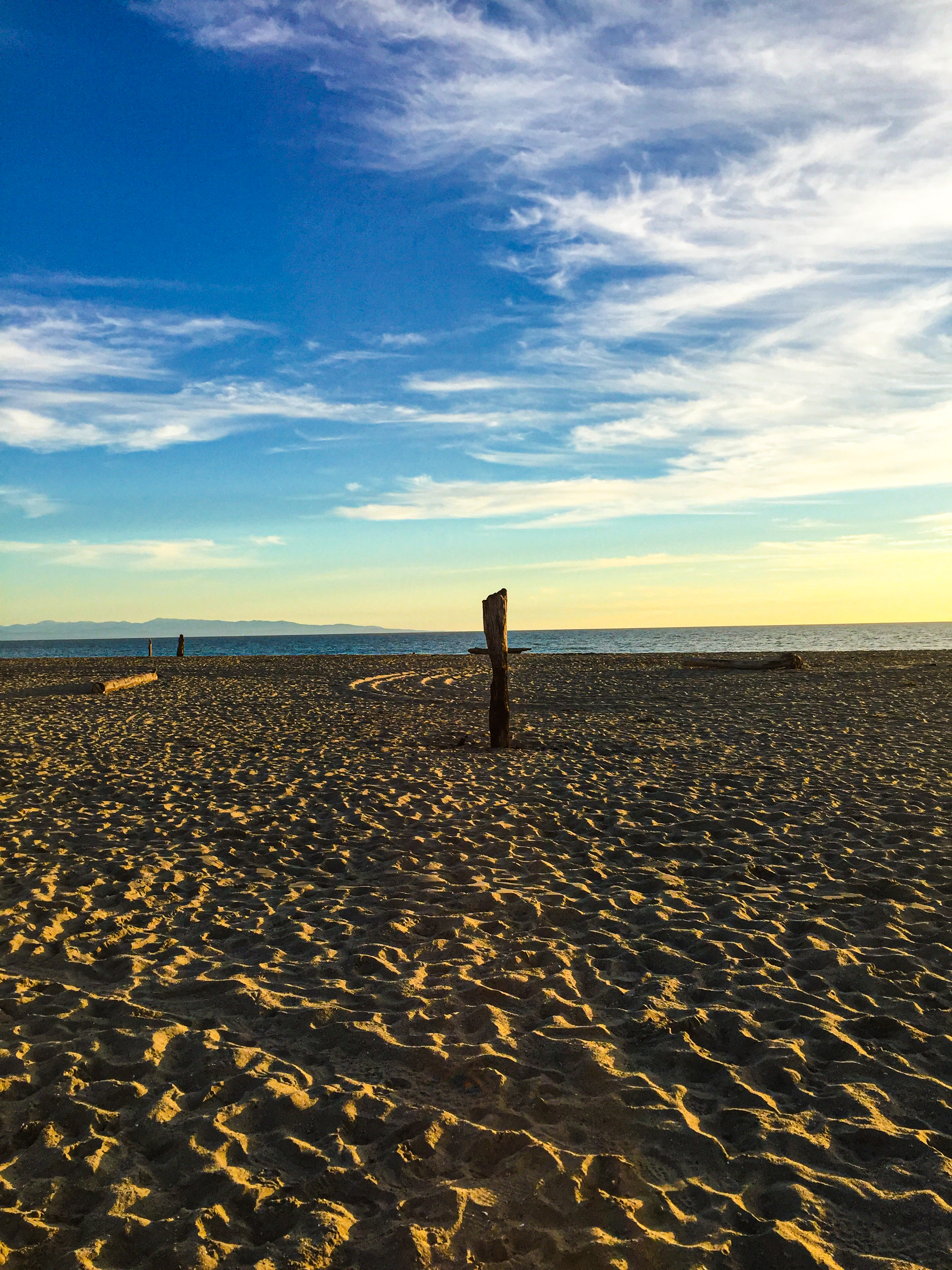
What are the terms of this existence? What is the urgency I witness on daily faces, inside windows and in their reflections? A trade: my meals for transcendence—not above this context, but to be without these contracts of connotation. Existence implies purpose, but we find no evidence. Existence implies value. A human is more than its weight in dirt. Worth obliges gratitude. Mortality hangs a deadline.
I will not rush. I will not measure my worth in terms of my accomplishments. I will not lead a life that does not leave me mesmerized.
There I am, an ordinary day. I say, "No, I've got to…then I've got to… and I'm not really in the mood to acknowledge that I am here, and it is here, and by some strange shuffle I can take it in."
There I am, resenting the driver who doesn't stop when I approach the crosswalk. This is a moment of my life, my time being thirsty, and I am too confused to appreciate the drink. Erectus cheered, or chuckled, or chanted when it saw a stone as a tool, a deity in the first flames. Democritus conceived of atoms, and in so doing explained the wind. In explaining the wind, he described our breath, our connection to the air and earth.
There is a porch light, a TV on inside. There's a streetlamp igniting a tree. I pass hedges with trimmed corners. A wind chime trickles into the night. I walk an avenue of parked cars and yellow windows, an avenue of front yards to human beings. Mailboxes have moon shadows. Tomorrow, letters will come, addressed to this way of life. I walk up the porch and into our house. I heap my insulating layers in a pile on the floor and start to the bathroom to brush my teeth.
There, in the mirror: self and organism. We are not projected images. We are the tangible matter of being. These veins give service to an organism of no function but to function. This cosmos is a cross-section of a capillary whose dimensions are refined and refined and refined to fingertips whose precision has no use but precision, to be the instrument and hold tight the instrument's string.
Perhaps still my philosophical zenith occurred when I first saw the TV inside the TV. I said to my couch-sitting buddy, "Whoa man, whoa." He agreed. And now it repeats in the mirror. My own face a power smaller bears its own reflecting eye. Rotating jewel, kinetic lens, soft protein stone, painted and flecked with the absurdity: all who can see it must struggle for it to not be mundane.
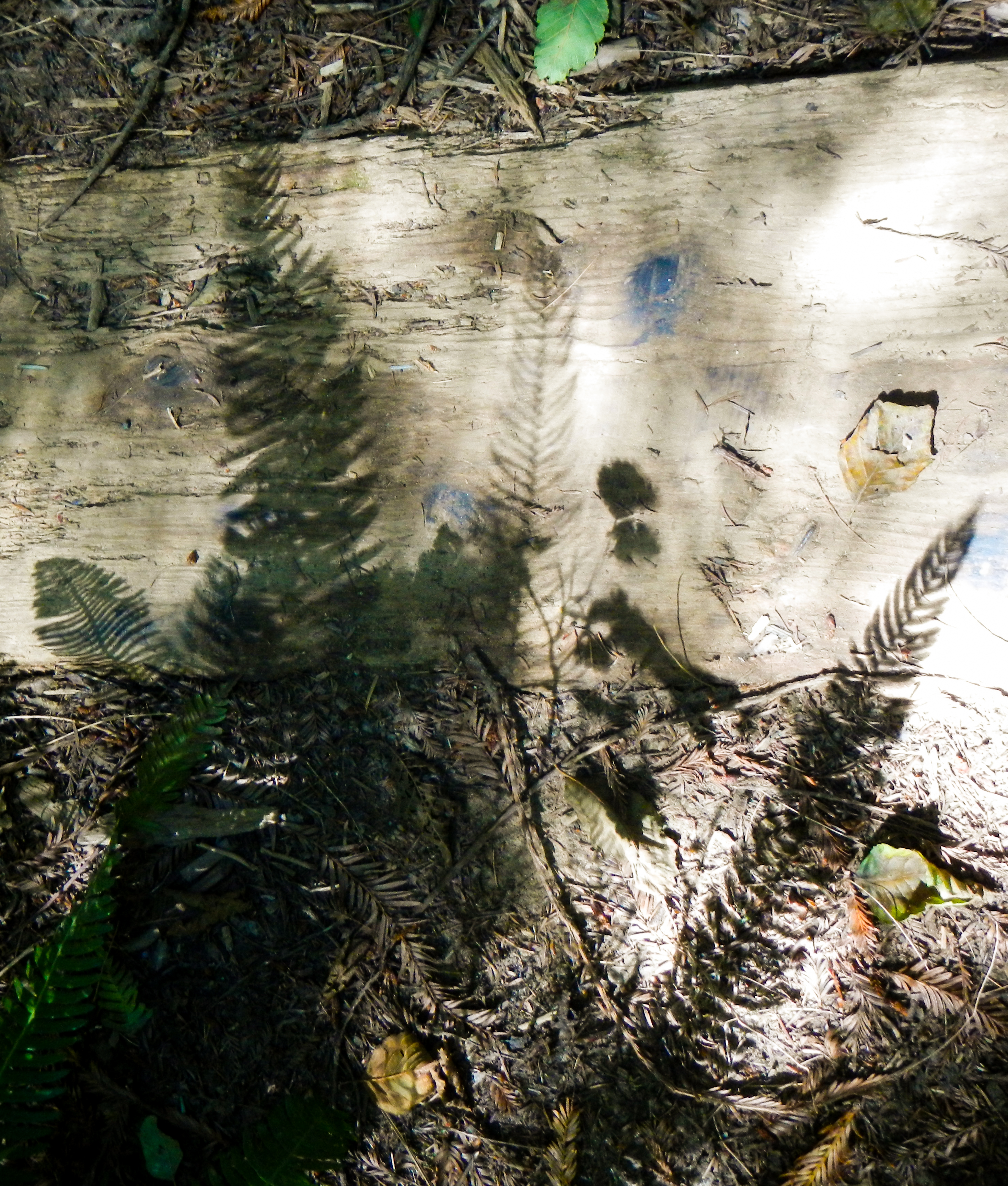
I want to pet my dog, the dog I grew up with. She's back home, older every time I see her. If she were here right now, or if I were there, I'd be happy. We'd play in the yard, tug on the rope. She was jumping and circling when I'd come inside the door after school. I want so much to pet her it brings tears. I get to one knee and pretend, make as if I'm rubbing her belly and scratching behind her ears.
If she were here, would I be content, or would I want something else? Endless pursuit. I wrap my arms as if to tighten on a woman. I bawl, and catch a drip at my nose, combine it with my fluid tears. Every science and every art, every thought is looking for the dog, the next satisfaction, a layer deeper. Where is the calm of the perpetual moment, the still achieved when we're bereaved of the exhaustive reach? Through my blurred lenses, I look out the window as if horizons had input. The redwoods tear their flesh, looking for the dog.
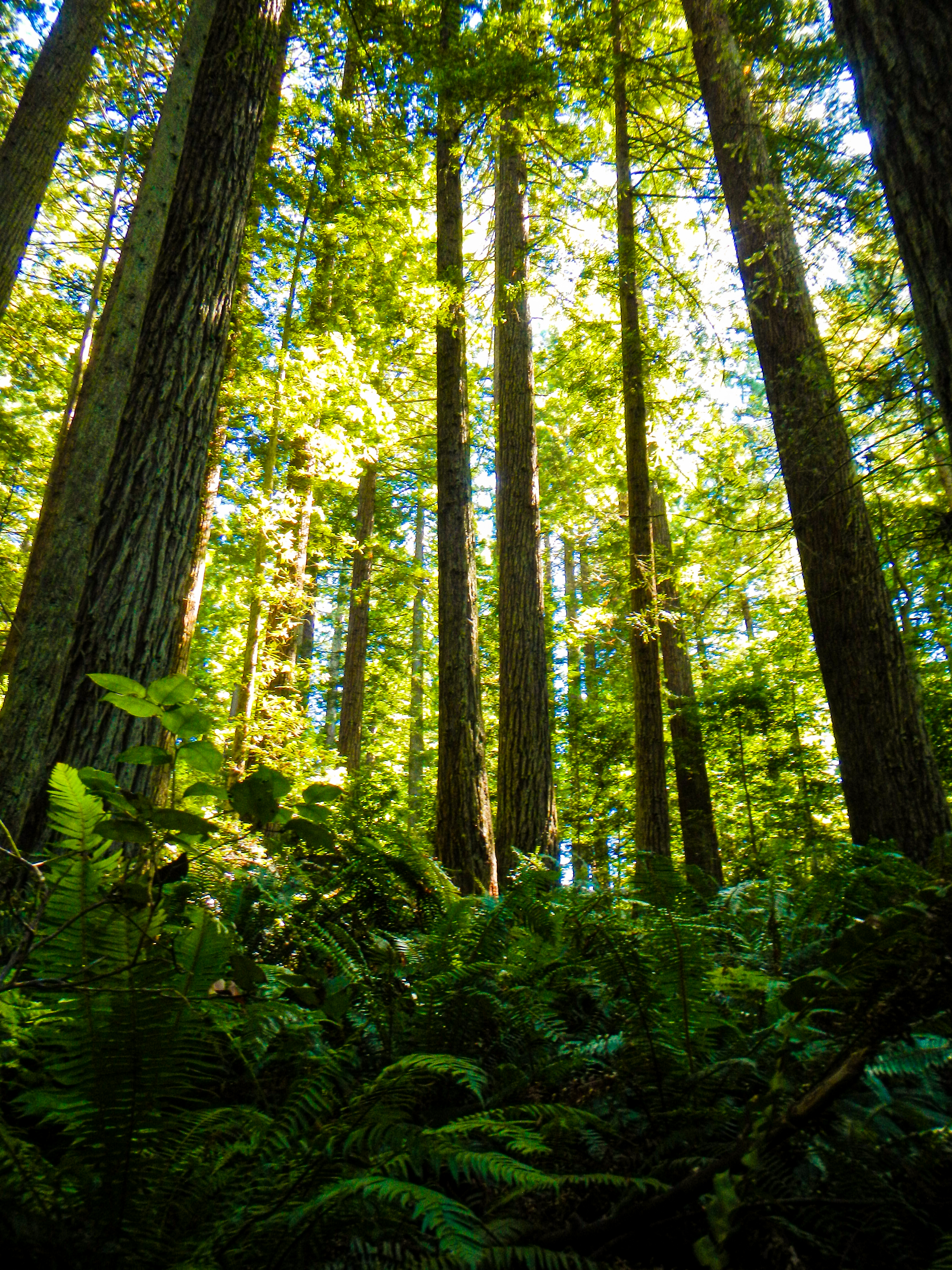
We think society has fallen. We think today is the day we've been warned about, when we stand amidst the rubble of what we were, clouds of grey boiling around us like thunderheads preparing to return what's borrowed. History tells of these, the dichotomy where fractures lead to linking of consciousness. Homes become one emotion. Villages think together. The world is intimate. It's amazing how shattering glass and gut-clenching cries can send a shockwave across the land, the psyche. Today we're conscious of the aspect of ourselves that is always crumbling, our nature of segregated perspectives, fists demanding domination, and compassion toward our kin.
We've seen buildings burn. We've seen ourselves jump, prefer impact and crushed bones to fire and liquid flesh. The lucky ones find each other in the smoke, reach to embrace, jump in threes or fours before the ninety-story fall. We are social creatures. We're a medium of particles conducting waves, pressure waves of community around this nucleus. International concepts and congregation, intercontinental contempt—these waves transmit our relationships around the planet.
Today is a testament to the rising, breaking waves. Brief eddies form on the crests, and in them we are sure there is greatness in human. For a moment we don't focus on the terror and instead pause to remember what we share.
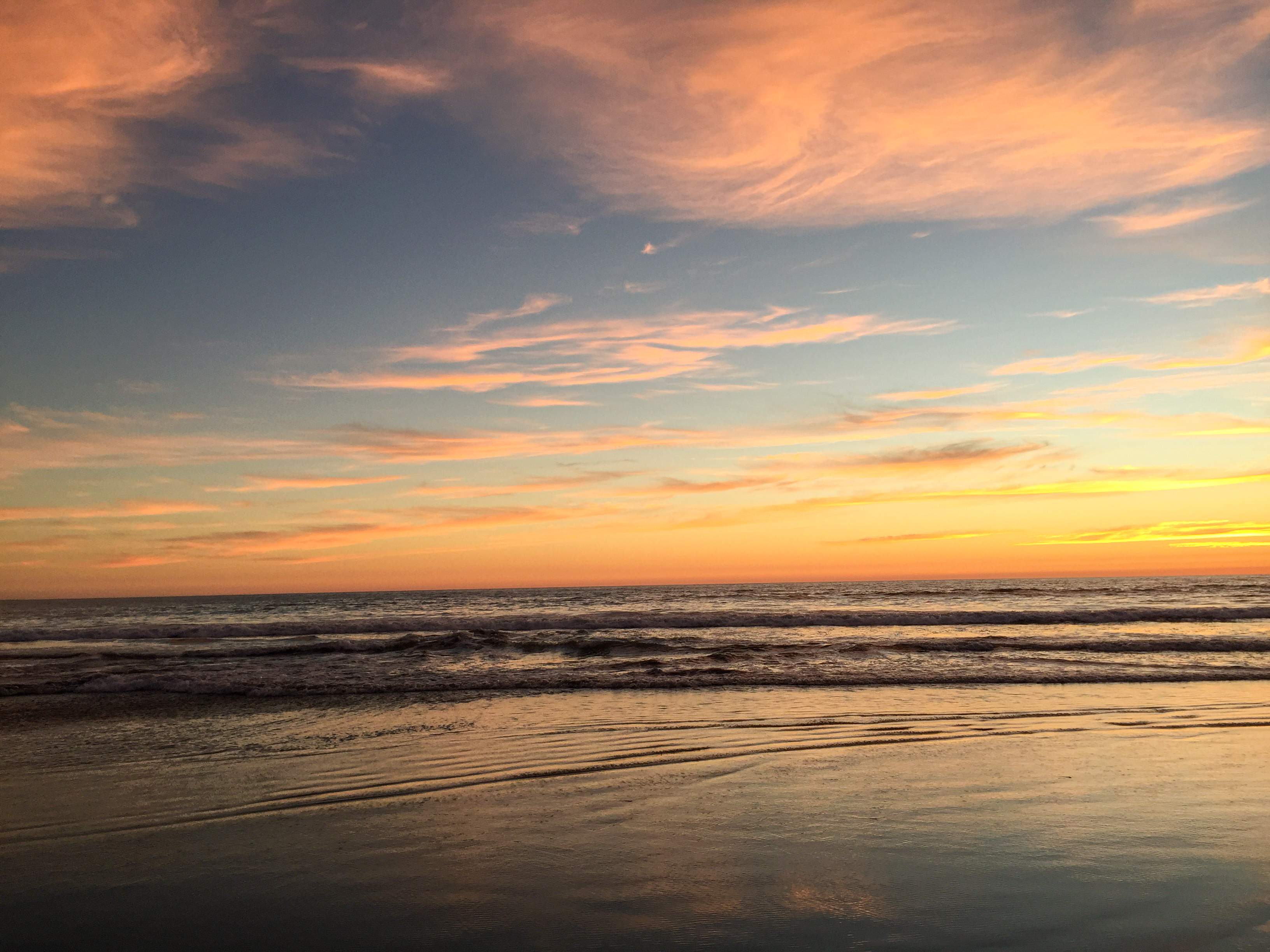
Particles in systems are different than particles alone. Two electrons in an orbital cannot be conceived of as individuals. Our living room is worried. The lights are out. The fridge will soon be warm. A part of us walks the near streets past the lumber yard. The field is bereft of cattle, taken in by frightened owners or stolen by the quick to hunt. A part of us passes the farmer who prematurely reaps his corn harvest. The sky is bright and typical. We struggle up and down the sand dunes to the ocean.
A part of us is simultaneously taking the sledgehammer from the shed out back, crumbling the walls of the largest bedroom. We'll turn it into our garden. One pair of hands begins to stack fallen bricks into a stove, chimney through the hole broken in the roof.
Knees on shore, we clench an unblemished sand dollar. Seals swim beyond the break. The hand snaps the dollar in half to make it jagged. Clothes fall to sand, we dive beneath a wave, past the break point, into their home. A seal circles our legs, surfaces to meet.
Four buckets at a time come from the hill. Dirt is spread across the floor of the room, feet deep, compost churned.
Bodies smooth, mammals kin, the white point of the object is forced into the swimming mind. The seals cry at their own blood, the taste of iron in saltwater. We pull them to shore. Shivering and praying to nothing, a part of us ties ropes of seaweed around the teeth and drags the delicate soul, collapsing of exhaustion at the top of each dune.
Collapse of exhaustion and buckets spill the earth, the food. A part of us sleeps with face on dirt. Smoke escapes the home. The seal lies on the kitchen floor. The fireplace is built, the largest room for crops, a kill for dinner tonight.
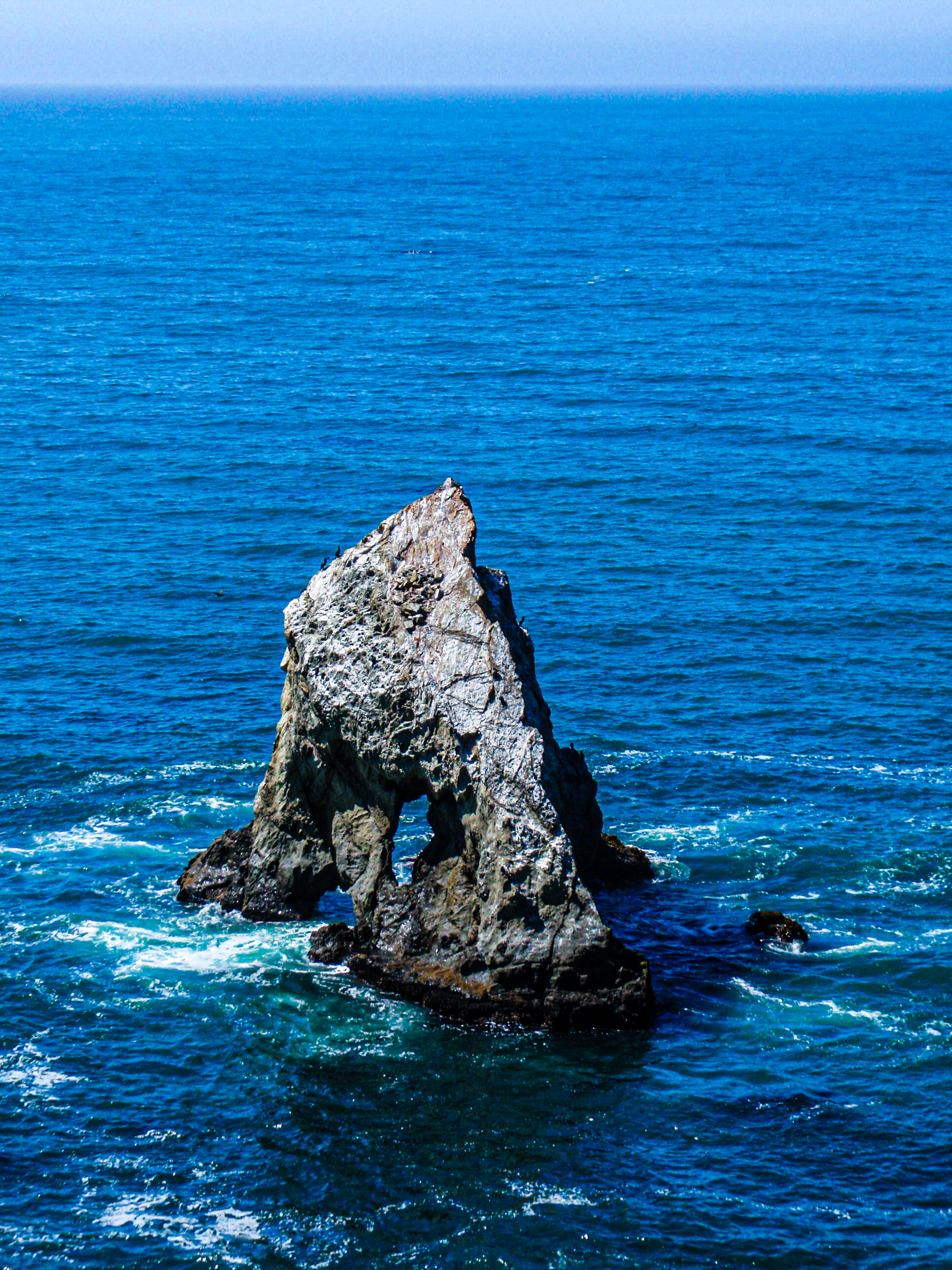
I fear we now face the question, "Who will own the moon?" How will we pick it apart? What bits will be ours, and which theirs? Do wars fought over land reflect an inherent need to possess? Do wars fought over religion reflect a fear of the unknown? How could someone see a form of god crisply in their mind and be moved to kill?
Who are we without our culture, outside of vocabulary and bias? I was born into a world of telephone poles, wires in-between. I was born in a third-floor room—civilization above ground, on a coast covered in structures. My bedroom shared a wall with the kid next-door. I'd knock and he'd knock back. Streets lined with cars; neighbors fought for parking spots.
Networking, travel, symbiosis. Watch it filling inward, streams of density from here to Denver, Chicago, New York. We'll keep stacking up, buildings on buildings, in the name of what? I've lived through many cycles of self, many revolutions. So has the world, each longer than an individual's life. We spin and are spun by. But what if we never fell back further than we were, a helix forward? What if there were a continual elaboration on ideas, dissolve of ignorance? But trees can't grow forever. It would be unjust to let us.
Society hasn't collapsed, though we fear our cancers. How do we know what is malignant and what is organism? Armies travel seas to accuse. As members of a nation, our duty is assumed to be understood. We are going to eliminate terror and shortly thereafter revel in our unthreatened state. My dad posts a sticker of the flag on his car and calls me on the phone. "Son, be a man." Gender roles are obscure these days, but I think he means, "Kill people for the Great Country."
Imagine that I go. Being in combat forces me to question the nature of good and evil, god; the afterlife is always on my mind. As the legend goes, how you live determines what happens when you die. According to the Christian/Catholic/Islamic traditions, you're either accepted into heaven, or you're not. Either way, you're jolted from a life of evolution and growth to a permanent fate in eternity.
In god we trust, but how is He making all these decisions? What is evil? Does subjectivity end upon his inspection, or are heaven and a god with opinions ideas spun by the human mind? My dad says, "He who loves his life shall lose it. God is your lord son; you are not your own master." He fears existential autonomy.
Here I am, fighting a war like all wars throughout history, people convinced that to die for their beliefs will bring eternal bliss. Born from this conviction is the slaughtering of opposition. But here in war, the idea of an observer assigning points to my actions based on their ethical value helps me make decisions. Completely subjective? Yes. Completely a construct of my own collected biases? Yes. But I don't claim they're God. In my mental dialogues I call them digits. I keep score of situations with these digits. Somehow this measure of value won't allow me to kill anyone. I run around and make loud salutes, but—
Okay, yes, I kill. Five people. I'm walking through the desert and accidentally sneak up on four soldiers. They're eating and vulnerable. I pretend to be violent. I make them drop their weapons. By now I'm able to speak a little of their language, they a little of mine. I find out that they hate what they perceive to be my beliefs and aren't afraid to die because they've spent their lives fighting for god and will surely be accepted into heaven. If the entire population of the hill right now, the five of us, were to vote, there would be a majority concluding that I am not good. Even if I were to vote in favor of myself, any person of reason would believe the four over the one. Just think of how we choose toothpaste.
One makes a break for his weapon. I shoot him in the leg. He keeps going and I must kill him or die. The rest are overcome with inspiration and break into cries as they make their last attempts to eliminate the evil of the world. I kill them all. In the blood splash I unweave their fragile threads. How can I consider my one more valuable than the four? I sit in the dirt and know I'll die before I kill again.
I decide I lose a digit. I cut off my trigger finger with a serrated knife. Far from camp, I begin walking. I tear my shirt to wrap my self-inflicted wound. Looking up, there's a child, mesmerized, frozen, both of us, beautiful aliens. I begin to speak. "Ar—"
She bursts at the sound of my voice. She runs over the hill away from me, just like I've always run—if her cries are laughs. Maybe they are. Maybe we're hide and seek partners, playing a game of companionship.
Almost up the hill she explodes—land mine. She has not made it to base. I will tag her, and she will be it. I run toward her screaming, noises like human insides, piles, splatters, meat chunks on a desert slope, the same noises we all make when playing hide and seek.
What is there is no longer person. What is left I knead in my hands.
At camp I tell the story of how one of them, ruthless, intended to torture me by cutting off all my appendages, but how after the first, my trigger finger, I'd heroically defeated him in hand to hand combat. I am sent home.
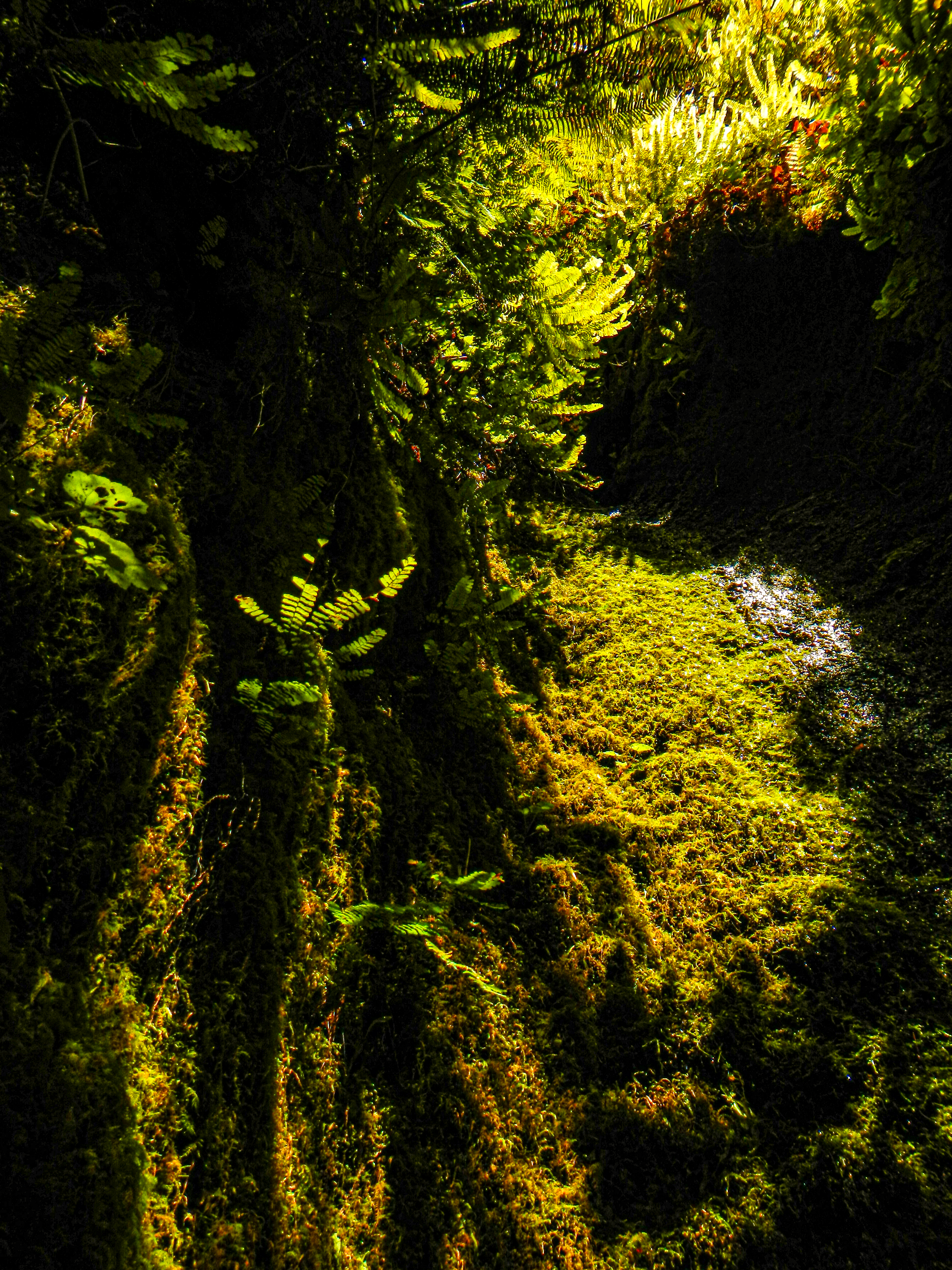
Is our history Baumbach's archer, shooting for the moon and hitting the roof? Our ceiling leaks in the rainy season. We'll need a carpenter. We'll need, as a family, to throw our spare change into a jar.
We put our finger on the atom and oh, it was strong. We can turn walls into gas. Some have been too curious not to seek the smallest part, go by the name of Planck or Bohr. On the chalkboard they've derived our insides, the potential energy of our souls. It's gazed at in lectures, its power discussed.
The redwoods are evergreen, but the yellow alder leaves fall at angles to the ground. They come down dying from the limb tips, gently lift when pulled by sufficient winds. Shapes are silhouetted by the moonlight. Redwood limbs are outlines overhead. A string of needles falls to the ground, only to be feed the forest once more. I pass my palm over the fallen trunk we sit upon. Its outer bark is spongy fiber. It forms a bridge over the creek that fills the valley with the sounds of water on stone.
We sit where the trees touch the ferns—growth conceived, but unconsciously. This is our planet, our niche. The reaching trees fit perfectly inside our lungs. An atmosphere of mist hangs. Redwood pins absorb it. Above the trees the moon is showing through an opening. The dirt of it is dark grey, almost black. Most of the light that hits doesn't reflect. But against the nothing of the space, it swims.
We're a splash in a situation. And on this ball, there lives a people, so small they call the trees giant, pillars to a building planet. Watch the forest in time lapse. Watch the wind take a redwood seed, and plant it to explode from the yolk. Do you see the hills shift, the plants like firecrackers? Do you see us, the tiny cells, streaking particles on the surface of the blossom?
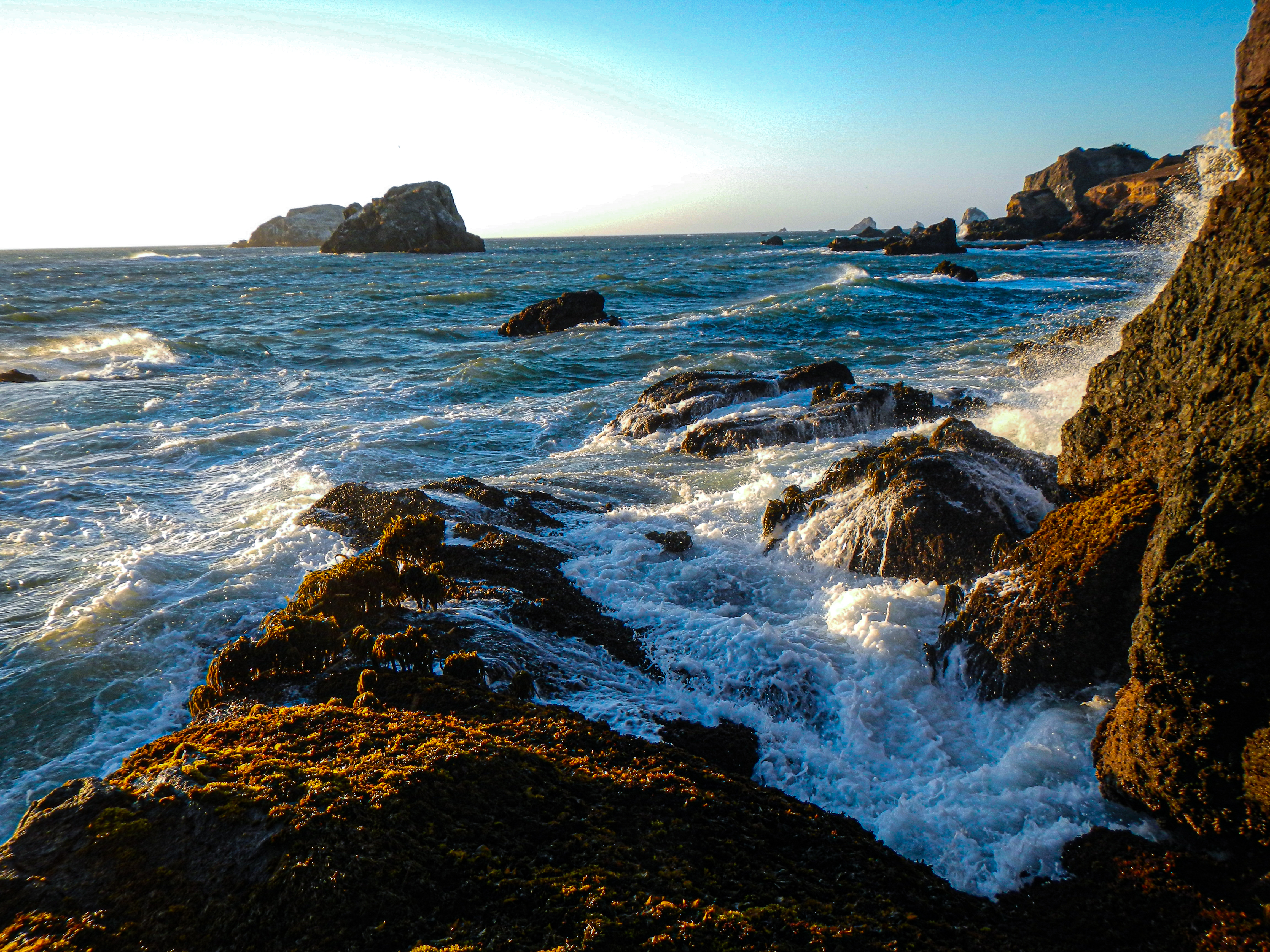
Time ensures we never keep anything. A moment comes to be, and its memory overwhelms before we can catch it and pin it down, frame it for god. We're equipped for handling fire and sticks, but time?
We were obligated to gradually wake into this realm of perception necessitated by the physiological mind. We were born from a fetus with knees. Now we find ourselves walking. We rarely lose our balance—something in the ear. We were born from vegetables and milk into a sphere of invisible dust storms educating cancers, pounding us back into dissolve. Expected length of process: seventy-two times around.
These are our lives. Does everyone realize that? After all the trips to the grocery store, all the reasons to vacuum later, after all the making love and laughing over ice cream, we, these strange fireworks will be done, leaving smudges on the driveway. Another family will move in, put a hoop off to the side. Our tiny marks will be reference points in a game of horse.

Problem: There are two people walking. Their paths are set for collision. There is no cultural consistency here, no "everyone go right," like we have with traffic. The two step north simultaneously. They both correct and step simultaneously south. They are still approaching. They will soon make contact if something isn't done. One stops. The other apologizes and goes around. "I'm sorry." "No, excuse me." Embarrassment ensues.
Similar problem: Two acquaintances meet at a party. "Hey!" They are excited to see the other. They go for the cool handshake, not the standard. Their palms slide smoothly. So far, the girls think these guys are cool. Their palms lose contact. One snaps as he pulls his hand away. The other forms a fist to go for the bump. The bump is left hanging by the snapper. Embarrassment ensues.
A common solution: Communication. "Hey buddy, I recognize that we'll probably smash skulls if we don't change our paths. How about if we each go to our respective rights? That should take care of it. Okay, good to know you." Nope, too long for functionality. Maybe just, "Go right."
"What?" would probably be the answer. Confusion would result. Hand gestures would seem rude and might scare the other person. Let's leave this alone for a while and come back to it. What about the handshake problem? Surely not a hand gesture there. It would be interpreted as a part of the handshake. We could call out, "I'm going to do the…kind of handshake," but then we would have to name all our handshakes, and everyone would have to learn the names. And then there's the awkwardness of who would be in the position to call the handshake. What if the two people simultaneously called different handshakes? Same problem. It's all so silly. There must be a simple way to address these issues.
Wait, I've got it! We'll communicate our thoughts! Direct transmission of consciousness! If I am walking toward you and you are walking toward me and our thoughts are pooled somewhere between us, we will collaboratively decide and not suffer impact. If our thoughts overlap to a greater degree as we get closer and closer, within an arm's length our handshakes will have perfect sync.
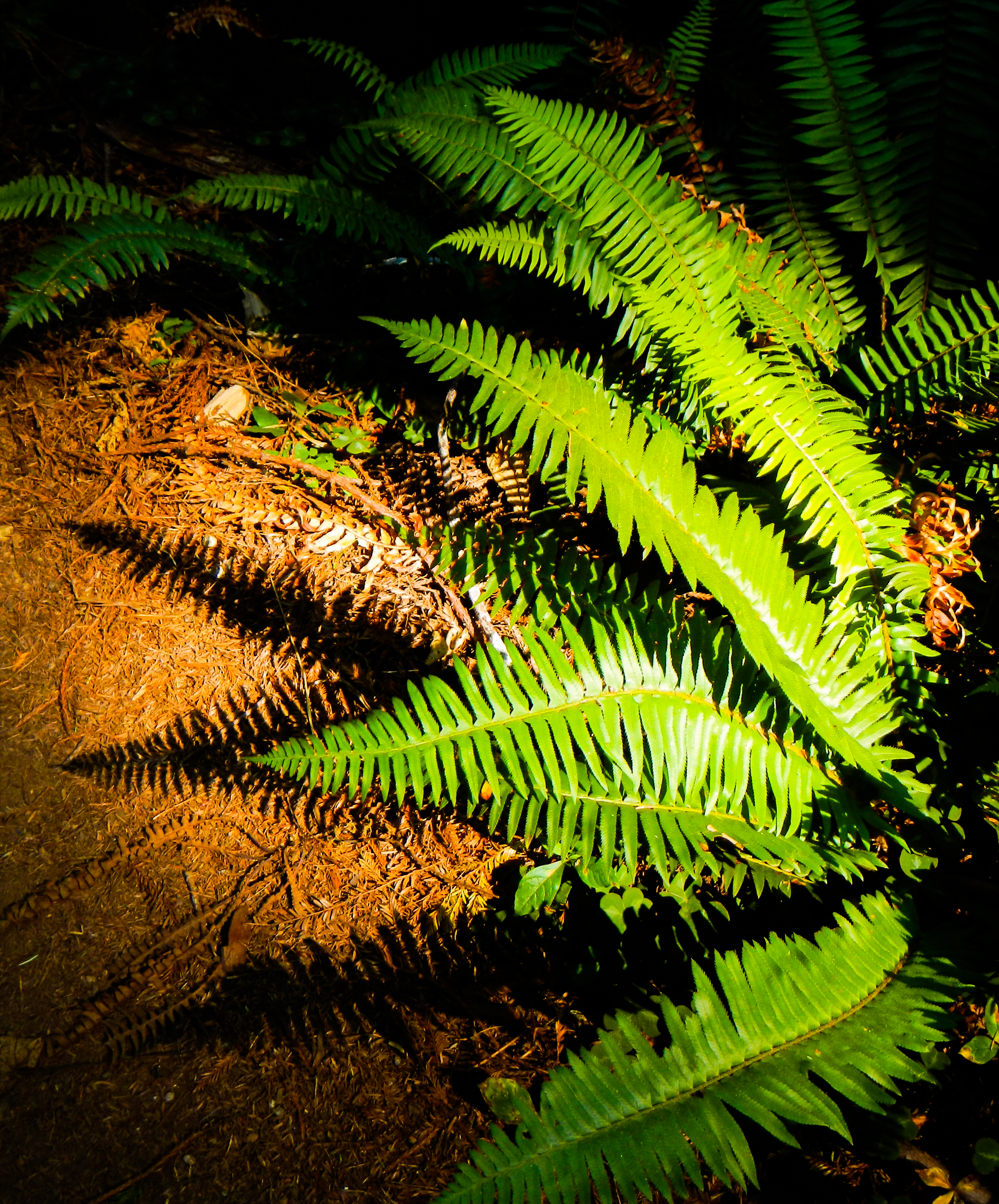
I'm in the airport. All the carpets and chairs have repeating patterns of teal and peach. Somehow this carpet comes from a bunch of tiny little loops of carpet, little nylon bend-overs. If you were that small, you wouldn't know the pattern, just feel like you were in a forest, scared of carnivorous bugs.
The plane will also have dorky patterns that may have been pleasant and modern at some time. Otherwise, why would the committee have voted in favor of the stupid square-and-line-peach-teal-on-navy-background theme? Perhaps there is some functional element of the theme that impacted the reasoning. Maybe it never looks dirty. It'll last a while, and fart resin will blend right in, an important consideration for seat-cushion designers.
I get on the plane, and am overwhelmed by latches, reclining buttons, ashtrays. Who makes these things? Where? Is there a factory for little crappy ashtrays? There must be a machine that goes "boom boom" and out the ashtrays fall, onto the conveyor belt. The people working the chair-arm machine would have to collaborate with the ashtray guys to get the dimensions right. The engineers must make some tough decisions.
A landscape of clouds looms between our plane and the hills just inland. We're on a puddle jumper to the mother city.
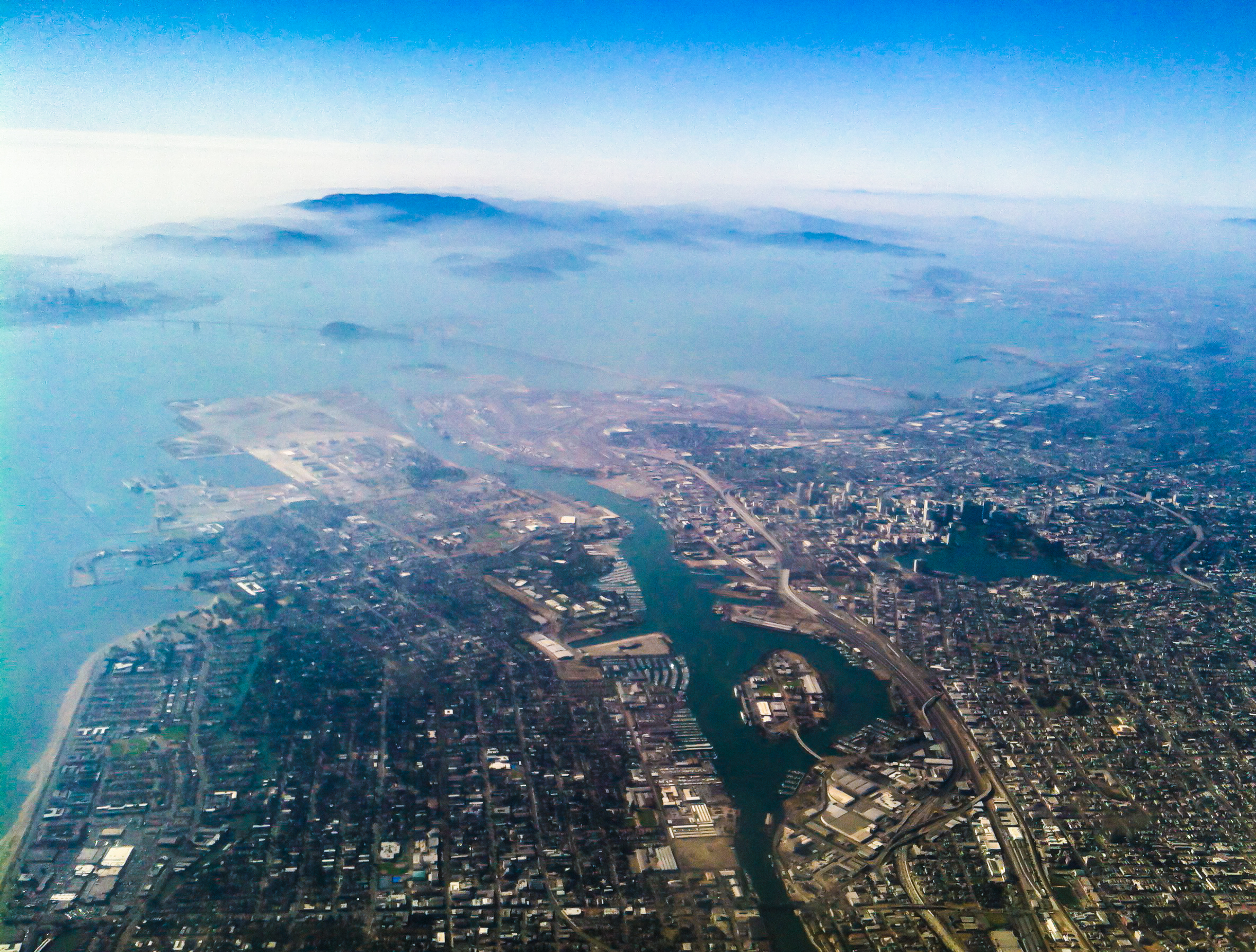
A scene from childhood: buddies and I standing on a bridge over a cement ditch. We've got a black and white TV from one of our garages. It must have been my garage because I get to drop it. I remember wanting to hear the glass break and see the machine guts splatter. Looking back, I modify my memory, convert this to a calculated act of symbolism. I'm trying to let myself out of the TV that is our society. I do not want to learn my values from sit-coms. I cannot be this slow heart on a couch inserting false lives into an unflexed mind.
I throw the TV to the ground and breathe as it hits. Buddies and I run down, grab stones to throw at what is still intact. We beat at the walls of the cave from inside. The shards are a fragmented organ, a box to a body, and all its inner workings are strewn, testament to arrangement and the significance of maths. The cave has crumbled and the stones it left will become the first tools.
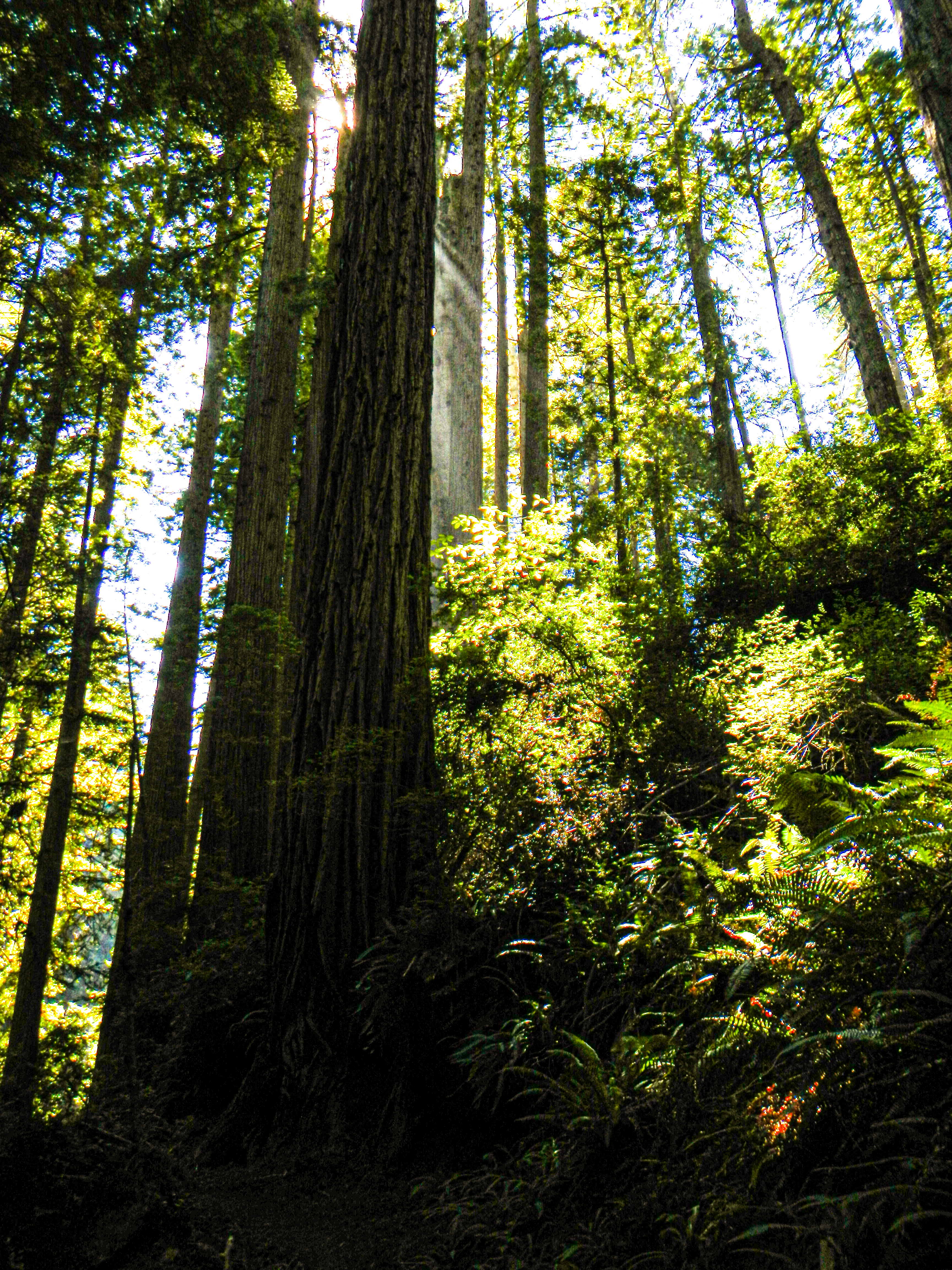
"All humans are linked to each other and with their social and physical environment in a fantastically complex moving equilibrium, so that in thinking about social questions we must, in the words of MIT president Julius Stratton, ‘advance from the anatomy of components to the physiology of the organic whole—which indeed is now society itself.'…Nothing is isolated. Life exists within systems and systems create themselves…. The basic point is that the human's role is to exploit this still unleashed marvel of flesh and bone and synapses that we hardly know."
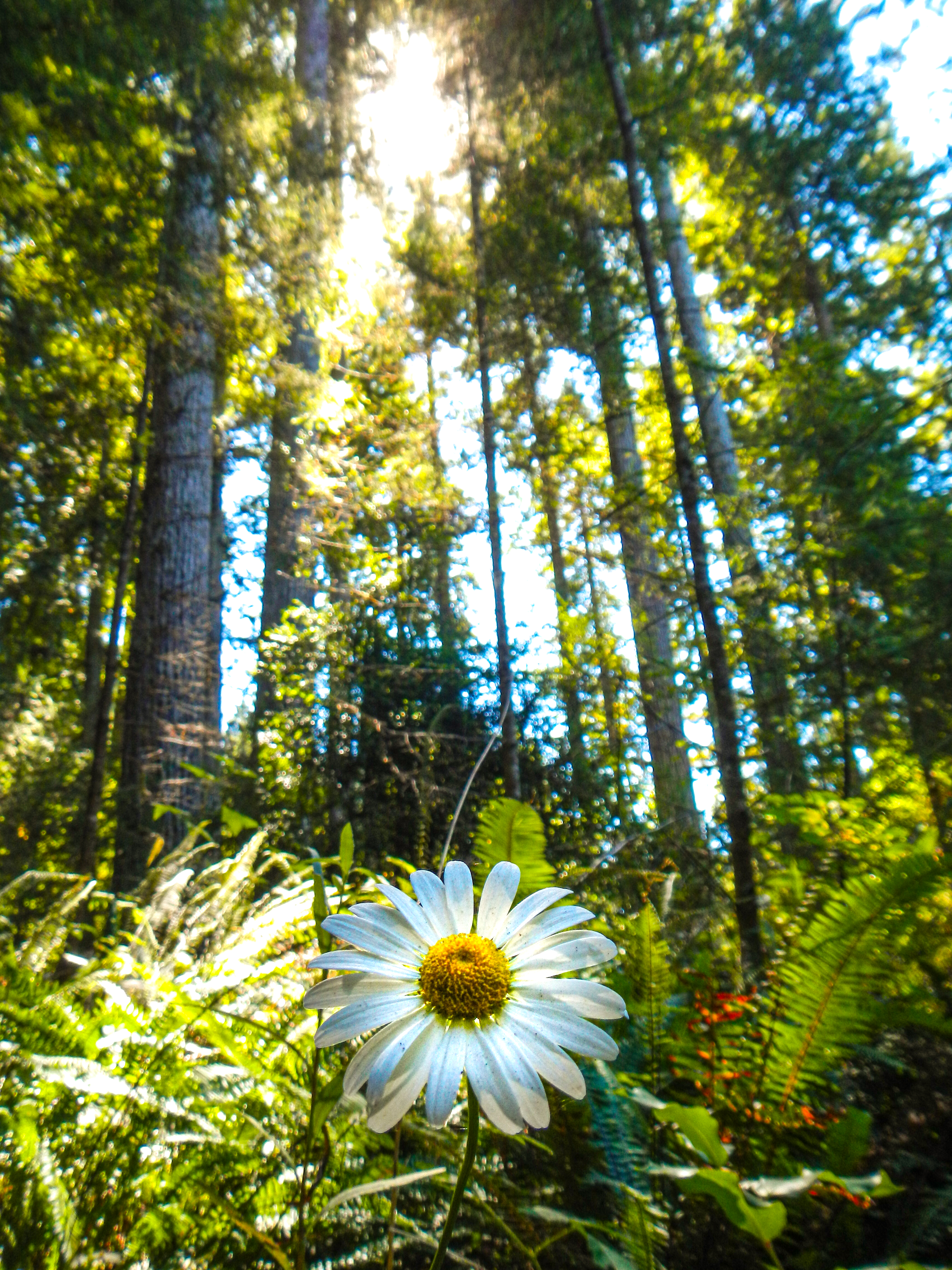
The laser reads the disc; electrons ride the lines to the atmospheres of sound I've wrapped around my head. My headphones buzz as I pass through the motion-sensitive doors. At the counter, the woman scans my card. She uses the mouse as a nerve to manipulate the machine. It functions and gives me a printed copy of my electronic ticket. I proceed to gate 81.
Ours is a beautiful alien civilization, architecture fused with foliage, fountains of water, structures engineered with triangles and steel. We are fleeting winds of design.
I stop off in the airport bar. Judging by the volume of the three guys over there, they've had a few. Something about a seventy-six Mustang, a couple of high fives and a worthy gulp each. You don't want to take life too seriously or sometime when everyone else wants to go get drunk and talk about cars. You'll get left behind.
A woman walks the terminal eating ice cream from a small paper bowl, using a small plastic spoon. A fly is sipping the garbage in a response to its chemistry. A man waits for his wife to deplane. Sometimes the instant gratification is enough.
Gate 81: people I will never see again. Right now, in the history of our race we hear security advisories over the loudspeakers, followed by smoking prohibited announcements. Cellular phones have really caught on, even more popular than laptops.
Everyone dies without knowing what it's for. Is that statement disputable? Maybe there's no reason; maybe sugar and sex are what it's all about. So life is meaningless—my saving insight is that meaninglessness is both sad and beautiful.
Out the window is ocean, land, San Francisco hills—not as segregated as the words make them seem. A small layer of civilization grows up the pacific coast hillside, sandwiched by ground and fog. Colorful triangles float across the water. I would not have any idea what was going on if I was not raised in this society. We live in an alien culture; strange reflective buildings grow from a splash of energy falling through space. We use sounds to move ideas from one mind to another, sounds shaped by a moist opening on the face, the array of sensory organs strategically localized near the brain. This is the weirdest place I can imagine. A fleet of flying metal whales is being prepared off the runway. This is the future. The San Francisco skyline erupts faster than it is ready. Shiny steel and glass cell walls boldly hold their form. Steel and glass spew from the planet, like strands of hair, or bones.
I sit in the restaurant, paying more attention to the computerized chess game in front of me than I am to my food. Its batteries give power. It thinks. "The Chess Machine," it's been cleverly titled. It beeps and I carry out its move. My turn. I've set it at level three of eight. Still, it's got me in a bit of a bind. I rush, not wanting to think slower than it. Its queen boldly captures my knight. I'm trapped behind my pawns. It plays a mechanized jingle to let me know it's won.
Game 2: The computer has just made a good choice with its bishop. It was a downright insightful move—and at a critical time in the game. But oh, there it is. Just three moves ahead I foresee a powerful support structure with my bishop and queen. Yes, at this crucial moment in the game, I can see past its bold offensive and begin to form my own network of strength. Game 3: I'm going to lose this one. It's been apparent from the start. A couple hasty decisions early on and I haven't been able to find a foothold. But that's okay. We're playing best out of five, me and the computer; loser has to get the tab.
I don't want to talk about game four. I turned the damn thing off before it was over. Best of five didn't even go to five. The human anticipates its own obsolescence. The human sighs and keeps on. I drop a ten on the table and leave the restaurant with my head down, The Chess Machine under my arm.
We board the plane. I embrace the satisfaction of a window seat and no one already in my row to crawl over. Televisions fall from the ceiling. Safety considerations developed by the government to protect the citizens/minimize lawsuits are explained to us by spokespeople. Ours is an advanced society. Then, for those who choose to listen via headphones, NBC in flight is on audio channel one. We live in the future. Colors, streaming captions, handsome people, I have to tune in. News short: Is Pluto really a planet? Its orbit is more eccentric than the eight others, and it's mostly ice, more like a comet. There is no space between my kneecap and the seat in front of me. I hope the guy up there doesn't lean back.
He's trying to lean back. I can't move my legs anywhere. He turns around and raises his head above his seat.
He: Excuse me; I can feel your knee in my back. Me: Sorry.
I move my hips to demonstrate effort on my behalf. There is really nothing I can do. Now, advertisements for a website designed for people to log on to discuss important issues, thoughtweb.com. We must improve communication. United provides you with digital quality audio monitoring. And don't forget to check your e-mail while soaring through the air in a whale's belly that we invented last century. Humans look small from a mile. To a light-year, a mile is small. What does this mean? People are small. What do we know about small things? They're cute. We want to tickle their sides and watch them kick and writhe and curse us, unable to stop smiling; they fit until we're laughing so hard, we have to stop to breathe. We say, "Sorry, oh, sorry—phew!" and then we do it more until one of us is miserable and one of us entertained and we're both in tears.
Now: ice skating. She's young. Our children are beautiful. Starting right off, perfect double axel. Now for a slightly harder combination—yes—she—yes! The strange little girl jumped right off the planet to spin, like a planet, a satellite of a planet, a moon, an electron, back to the blade on ice, a relationship invented to reduce friction. This activity has value. It makes her an artist. She has examined and utilized her existence.
A child's parent holds him up and teaches him how the button activates the reading light. He laughs, deciphers the pattern: On, button makes it off. Off, button makes it on. How does the air spigot work? We're somewhere above the coast of North America, and right now, a hundred miles up shore, someone is crossing the Golden Gate, and noticing the bolts and cables, the rust red maths of the bridge. Yesterday at this time they were in a pear orchard noticing the patterns across a butterfly's wings. Someone's going the other way with face wide open singing Abbey Road, "She came in through the bathroom window…" And at the toll booth a hypothetical conversation over the passage of a five, "I don't want advertisements for cars and credit cards to drip down the back wall of my mind, or to see the earth as concrete not flowing. I don't want my foot on the clutch every hundred yards."
"Well come on in," says the tollbooth attendant, "and don't overlook the stacked-block homes, or the wires transferring thoughts, binding these breathing lives. For five bucks you can come on in and see how we are flowing stones."
Back to NBC—talk of buildings twice as big as today's, a bridge connecting Europe and Africa, Gibraltar's, all will be relics. But we're right now. These are our lives, a dream of one day linking the world's continents with global veins.
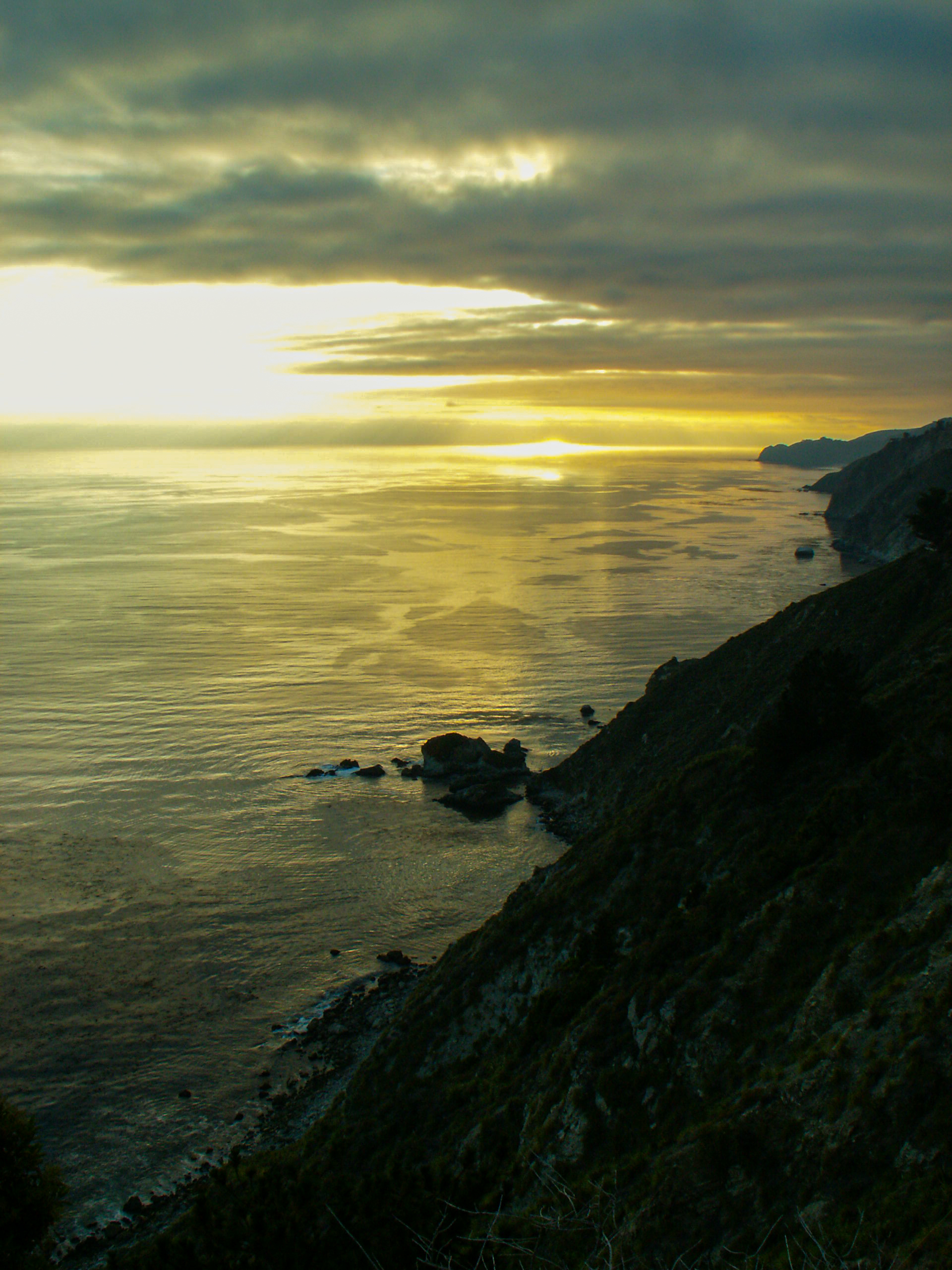
Capitalism, we often comment, can cause people to work for no reason but money. Whether or not an action will gain capital becomes the very gauge of whether or not that action is justified. Do we like it this way? The question is on our shoulders. We discuss. Hopefully our discussions will lead us out of ourselves, and into a polylogue where points are not protected by egos.
—Capitalism claims that humans work toward self-interest, toward pleasant ends seen by individual minds. But aren't we beginning to see ourselves as cells to a larger organism, our significance in our contribution to the larger body? We're past the primordial soup. We're elements merging into more significant molecules.
A glance up from a portion of the paper, the comment implies the nature of the article.
—I'm not sure if GE foods are a health risk, but I think that that area of technology should be explored. The progenitors should be challenged but encouraged to experiment. There must be a polar pursuit, skepticism balanced with the desire to progress.
—That's the pursuit capitalism brings to consumer situations. The producer is interested in cost effectiveness and is checked by the consumer that doesn't have to buy a shitty product.
—So it's a catalyst for development, but there are too many impacts that the capitalistic market feedback loop fails to consider. Inevitably we'll move on, so this can be thought of as a phase in the social evolution of humans.
—So we should challenge GE foods. We should challenge all technologies and all social mutations, but we should accept them when they benefit, and let them become a part of us.
A swig out of a jar of apple juice.
—Right here it reads, "Nothing artificial," but the first ingredient is filtered water. We are our processes and techniques. We can't be afraid to utilize them. If artificial means something created by humans, then it makes no sense to claim, "Nothing artificial." We're an entire concept of survival and adaptation.
A quick thought: It is most probable that we are somewhere in the middle of the road. Society is confused, but not evaporating like we sometimes accuse it of being. It will continue, possibly for longer than it already has. We are not the crescendo we often think we are.
—It's impossible to foresee what society will evolve into. The next hundred years, even that's tough to gauge. A thousand? Can't predict a thing. We could exist that long, wouldn't be outrageous cosmologically speaking. What will we be then?
Consciousness-1. A sense of one's personal or collective identity. 2. Awareness of an object, event or idea.
Modem-1. A device transferring data from one form to another.
Consciousness Modem (cm)-A technological organ merged with the central nervous system to allow direct transmission of thoughts and information between groups of humans or between humans and machines.
—Let's be clear. What exactly are we talking about?
—We're talking about how the human race will communicate.
—It's more general than that. We're talking about the deliberate technological evolutions changing Homo Sapiens into whatever is next. I mean, my job is to work on the circulatory system. The cm is essentially a new nervous system. We're constructing an organism.
—So evaluate this critically: Should we trade cell phones for modems in the mind?
—How do we decide when society is ready for such huge transformations?
—If the technology exists, natural selection will occur.
—Geneticists will engineer more capable brains. With cybernetics we might derive the cm. I don't think we can pretend to be able to foresee what will result. I've got my silly preconceptions and you've probably got yours. But if we can't accurately foresee the results now, when will we be able to? Not until after they've occurred. So if we ever want to understand the implications, we've got to create the technologies. And this means creating them without fully understanding the impacts they'll have. We either take the leap of faith or we don't. And most likely some will want to, and some won't. But the nature of it is, if only some want to, and they prove able, we all find out.
—It's not an abrupt leap like you make it sound. The transformation to the cybernetic organism is already taking place. What portion of our population, these modern apes, is not involved? What portion will not be involved in a hundred years? Go to Manhattan. Stand in Time Square. Tell me how much longer we'll be alive without computers in our minds.
—Maybe the majority of us are happy just being while the minority is focused on becoming.
—Hasn't evolution always been driven by rare mutations?
—While suffering many cancers.
—Are we sure we're happy? Maybe we're not and we just don't know what to do about it.
—Do we seek an end to suffering?
—I think it's worthwhile to attempt to improve the human condition. We must ask ourselves, "What characteristics do we want in our society?" And the one stone of my philosophy, at least as far as the behavior of humans goes, is utilitarianism. If you're alive you try to make it amazing—and for everyone.
—But the problem with utilitarianism is that there is no objectively verifiable path toward that goal. Our conflicts arise from disagreement on the issue.
—Right, from the point of view of continent A the situations look one way, and from continent B they look another. To me nature is one pattern. To you it is another. The way we can approach the utilitarian goal is through communication, and words only have so fine a resolution, and speaking so quick a rate. Communication mind to mind could form a crisper overlap. If we were all seeing the views of each other, we'd no longer be a vantage point; we'd be a sphere of perception. —And conflicts disappear?
—How do you drop a bomb on a village whose breakfast you can taste? Conflicts disappear? No. But we can move them to an arena without gladiators, an arena of thought conversation.
—What sort of psychology will apply to this new mind?
—What will be the human experience?
—The question becomes, "What will be the experience?"
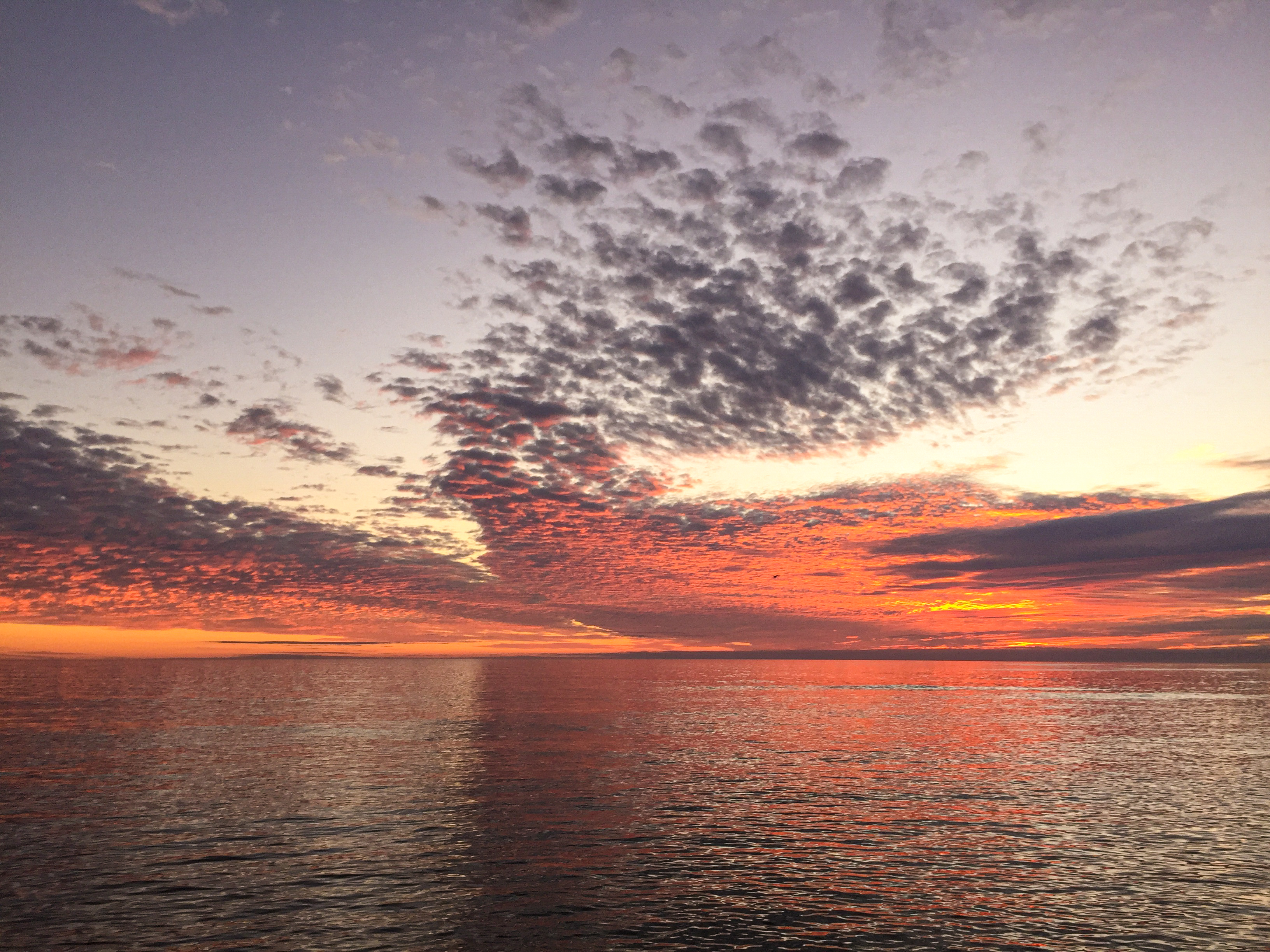
Sunday morning light comes through the windows. Breakfast dishes sit by the sink. We're in the living room.
—Versions of us exist in the minds of everyone we meet. The reality is that all the versions differ from each other and from the version in our own mind. How far off are the extremes? And who is the real you? I turn it around. Who am I? Who are we? There is a pool of perceptions, glimpses from different angles. Are we that pool?
—Maybe we're just electricity through mud puddles, the verifiable substances.
—Then there's no significance contained in the thoughts of the brain.
—There's significance there. That's where we exist to each other. The quintessential difference between the human and the dirt is the ability to perceive the relationship.
—Is it more important to be human than to be dirt?
—It's subject to the observer, but to me, a human, yes. Constant emotion and thought improves upon empty atomic being.
—A lot of Buddhists and physicists would disagree.
We open the window to let the warming day inside.
—As humans deciding our evolution, what are our criteria? Are we asking what is best for humans or what is best for nature?
—How could it be what is best for nature? Nature is indifferent.
—But other species aren't.
—So our criteria are that which is best for the species conscious of existence?
—Then we must ask what consciousness is, and what about it sublimates its worth?
—How can objective criteria include the word best? If nothing has objective value, there can't exist an objective best. As humans deciding our evolution, there can only be subjective criteria on which to base our decisions.
—There may not be an objective best, but there is an objective criterion: That which is capable of persistence will persist. It's the criterion natural selection has always considered.
—So we should decide our changes entirely on what will be conducive to continuation? Even if that is our criterion, we still must guess which way to go and pass through time's filter.
—But if in foresight a change looks dangerous, we ought to turn away in advance. As a scientist there's an obligation not to present society with capabilities that threaten its wellbeing.
—I think we're more ready for change than we know and have already endured more of the change than we know. The technology is here and advancing. The scientists are curious, and that's an overwhelming force. Our species is erupting.
—What changes do you consider eruptions?
—We're nervously associating ourselves with machines of all sorts. A professor in England has already controlled a wheelchair using thought alone. It's been proposed that we'll be able to store memories in an external data base. Then there's data input, memories and knowledge uploaded, images uploaded, light through microscopes digitized and communicated right into the mind. And the immune system—nanobot blood cells importing pathogen defense tactics from a biological internet. Designs already exist.
—All this, and the capability of communicating thoughts as photons?
—Just some ideas.
—What if some don't want that?
—Then by no means should it be imposed upon them. But some are interested, and they have the right to learn more.
—Then what? How will I communicate with them?
—You must ask yourself where you will draw the line. What technologies will you accept? Do you stop using sunscreen and the web? Do you stop drinking from the tap? Do you stop bringing water to your hut in a vase?
—Those are questions we face as a society.
—But we disagree. Should we separate into colonies and fight wars for superiority?
—What if evolution becomes religion?
A glass of juice is finished. It's walked to the kitchen and set on the counter.
—There is no intrinsic human. We're constantly redefining ourselves. Economics—what will be the utility of dollar bills in the new society? Already, finances are largely computerized. Money is no longer real. It's an abstract scoreboard we all agree upon. What do the numbers even mean? Tallies of energy spent, energy earned, if we bring the digits into our minds the entire concept of economics will morph into the organic consciousness of society.
—As it is, our languages are processes by which we organize and communicate thoughts. Speech, math—we'll use computers along with our minds to organize and develop thoughts, allowing for greater complexity, greater consciousness of each other and the world.
—Obviously this approach would increase capabilities of manipulating our environments, but would it also increase capabilities of manipulating each other? How much human confusion will be filtered out and how much will be magnified? It seems likely that the same tendencies toward conflict will exist.
The speaker leans back in their chair, weaves their fingers behind their head.
—We are living through the most phenomenal florescence of communication our world has ever known. And I'm willing to say, it's still not good enough. Internet schminternet, it's only as clear as words. How can we make our voices louder than bumper-stickers? Have we ever really said what we wanted to say? Maybe words are at fault. Not to be ungrateful for their expression, but maybe some other way we could communicate exactly what we feel.
—Even with the cm we'll suffer from the inability to let it out. We'll continue to be imperfect, yet we struggle for the upper hand.
—Why accept the slings and arrows?
—Why seek a combination of tools with which to tune ourselves? If we're happy being human, what do we hope to gain? Connect us all on thought lines. Integrate us with the machine. We'll end up with nothing to do but sit there and look around. Perhaps there's wisdom in doing that right now.
—Why stare at limits we could move beyond?
—Why move beyond if only for further limits?
—So what, stagnancy, the end of the seek?
—Maybe closer attention to the richness and texture as we are already able to perceive it. Otherwise, where does it end? What part of us will continue to be?
—What is us right now?
—We fight. We argue. We hurt and we're curious. All of this leads to evolution—and we end up somewhere new.
—But are we ever different than who we were? Communicating thoughts as photons, while a refined technique, isn't crossing a line that wasn't crossed by speech. We're already a pool of consciousness.
—I disagree, maybe not on the subject of speech, but I see a team of robots building a house as significantly different from the advent of the hammer.
—But is it significantly different than a fleet of cranes and forklifts?
—So the new consciousness—how will it vary from ours now?
—Perhaps neighborhoods of consciousness, relationships between them, between cultures, global flares and depressions.
—So what's the difference?
—No fundamental existential difference, just clarity of transmission, content comprehended. It won't be individuals reading each other's minds, but minds collectively processing. Any one mind makes clouds of connections. The cm will allow the clouds to be more complex, exist between us.
—Memories kept on file; our life experience will be our children's from which to learn.
—So what, we never again teach our kids to count? Children birthed headfirst into a microchip—will we mail-order, "How to live: Months one through six," have it come on C.D. and put it in our child's head?
—I'm pretty sure at that phase mail order would be obsolete.
—Food is practically free, and there's enough for everyone. We don't expect to be killed by micro-organisms. We can get anywhere on the planet in a few days, tops. Technology has made this a different existence entirely. What now? According to Maslow, all that's left is self-actualization. Can technology help us there?
—For the first time ever, the universe will consciously decide how it wants its particles to arrange. We are that consciousness and we are those particles. All the species come and go. We're no exception. But we're piecing it all together, fossil records, genes, knowledge of radiation. We can fathom evolution. It's a more dignified role.
—Deified?
—Dignified.
—Oh, sounded like deified.
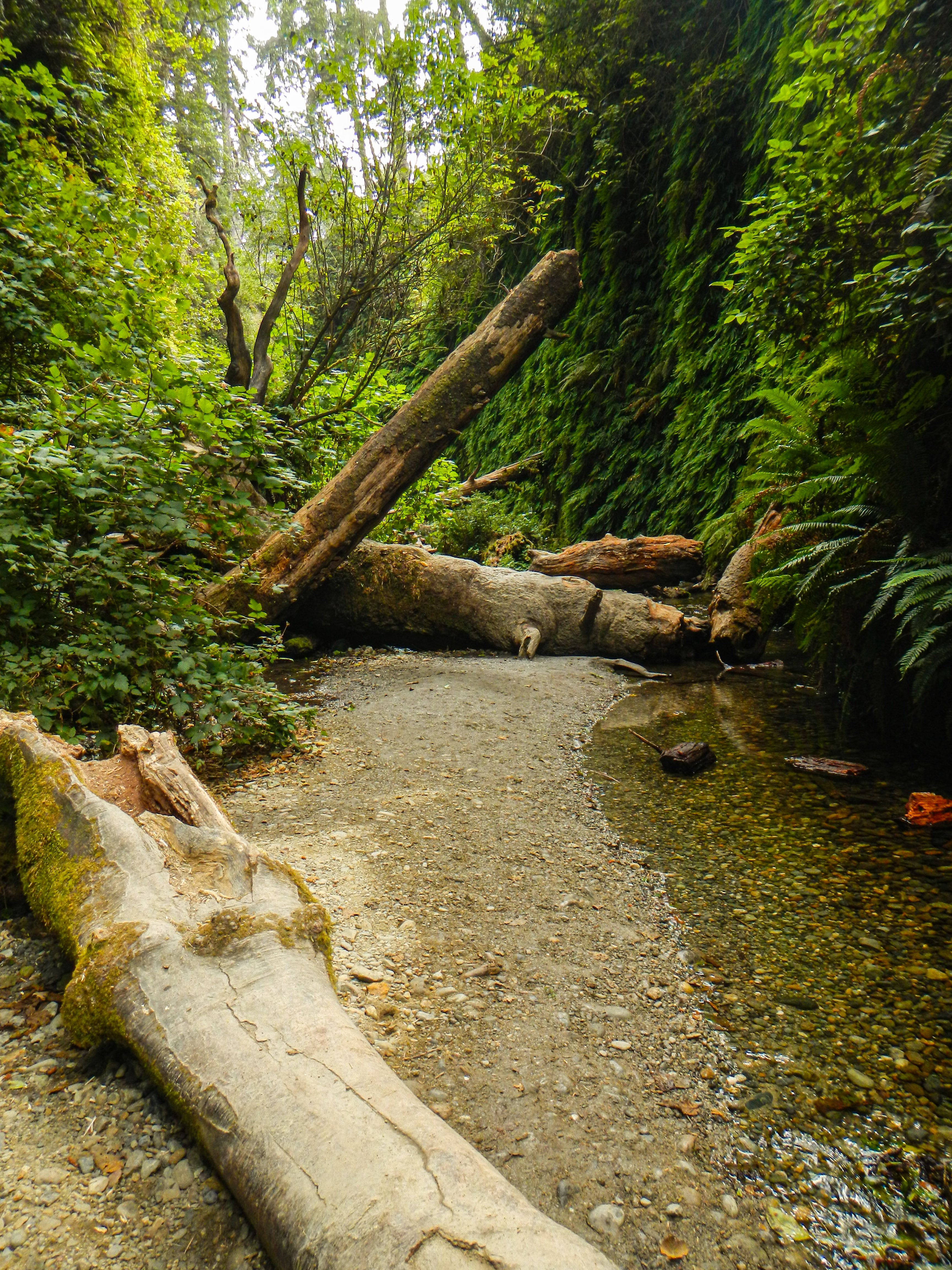
Why do we stir the puddle of society? Why not let the mud settle? If I am the small whole, the microcosm, why am I here splashing grit into what could be a clear pool, a calm mind? What if I hiked out alone into the Northern California alps? In solitude I might find that all I am is thoughts, companionship is in consciousness, and individuality is imaginary.
There's a creek at my feet, wrapping a hill. A snail is on the next rock and has the spot I want for my next step. I watch its patient slide onto a log before I move on. Steps in fresh dirt start a trail. If my internal compass has no true north, I expect to be fine approaching an unknown horizon. If I can't feel the electric currents in the mantle, it's because I'm pulled by my own cerebral circuit, the paradoxical vessel of conception and inhibition.
I apologize to myself for the wasted strength that I cannot find mind to call upon and start up the hill. I take no switchbacks. Each lunge tears the fibers of my quads and reminds me that strength is finite.
There's a snake a meter off the trail. It slides away at my coming. I slip when I notice its rattle and split my shin on a rock. My leg shows like it shouldn't, as if it were a snake, tearing through as it shed. There's an opening into the curious wrapped by the mundane. I shift my handkerchief from forehead sweatband to calf bandage. It strangles the flex of each step as I walk, now through a meadow that opens to a view.
Shale panels are faces in sunlight. Slate plates erupt as corners into blue sky, with pulled-thin clouds behind. Shrubs hold and trees climb from every ledge not vertical. Glaciers of reflection melt then pool at the base of the arrowhead ridge. Their sound is the drip of white into clear, the liquid ride over stone.
I see letters in grasses and gravel, patterns in daffodil and dirt. I see angles and formulas, the inside of a mind that wants to comprehend. This search is expressed in many languages, but complete in none; another Zen phrase rolls meaningless off the tongue. The human pattern finders peer through the eye slit into the infinite kaleidoscope, watch it move through the overlapping geometries of itself. The trees, the rains, the hills are gusts, my thoughts winds that I am frantically trying to sail. But if I am a small shape of stained glass in a spinning disc of mirrors, then frantic or calm, all I am is falling.
When the sun makes the rock face pink it is time to camp. A level spot, then I seek firewood. I find a dead pine and begin snapping its limbs. It has all I need: kindling, sticks, and logs. With the wood in my arms, I walk back to camp. A spider crawls from the pile to my shirt, from my shoulder to my neck. I blow it off as it crosses my lips. I drop the wood and head to the lake to fill the pan for dinner. The sun lights the underside of the clouds. I'm pooled in a basin of three walls. Where they fall, the hills texture off to the horizon, and I'm shown that against my intuition this peak is not the zenith of anything. The hills could extend forever, stop abruptly, or wrap around, through a cycle of ripples, canyons and green, then back under my feet where the surface lens of this lake reflects it all to me, then trembles away from my dripping pot.
I cook rice. By the time I'm full, the dominant light is fire. And while it reveals for a radius, beyond that it blinds. The forest is there in sounds. I let flames turn to embers and lay parallel with the white-hot limbs. The basin in my consciousness is unchanged when I view the regress of vein valleys as an infinite plane of land. To me, the stars are thoughts on a perennial night. But as soon as I believe my explanations, I blind myself beyond a radius. Perhaps to live without an ornate epistemology—but not without warmth for cold hands.
Believe what? If I ever fall into true love, I'll know I've fallen back into a childhood conception, the one where life is out there, and mysterious, but in its adult form, full of order, decisions made from purpose. This is not a claim that I've grown up. That would be a misinterpretation of the coordinates.
On my back, the view is allowed out to the galaxy disc of stars, a bend of glowing dust. A meteorite passes into us, making the first sound it ever has as its particle friendships are forced into goodbyes.
I feel the soreness from my shin, but I'll wait until morning to let it breathe. I check that the dressing is still tight. Indifferent to the pain, it feels good to be cut again. Palm to the fire-pit, I see a scar from a pocketknife, a camping trip as a kid, now tissue into skin as if the cut were the falling star, the scar the mist trail.
I don't expect to find a self in the raining world of light, this spray of glows. Deer footprints grind the snow. Two or three of them are watching me. They call me the one with many skins and hypothesize about how I brought the sun from the day through the body of an evergreen and into the night.
They look at the stars with me. But are they like I am, disinterested in constellations, disinterested in looking past the reflecting moon and the orange sands of mars to see connected dot stencils of imaginary things? Eddies of stardust have fallen into spinning beads. Droplets of crop soil have merged into human beings. Photons in spray have shared the stars with me. As I lie, I let the rattlesnakes writhe across my chest, let the fir tips burst continuously, and blow in each gust as I do. If this is my once, let the spider web the niche of my snail ear. When I wake, the embers will be out, and clear as day, there will be the sweeping wind whose rivulets seem, over short enough time, to hold form.
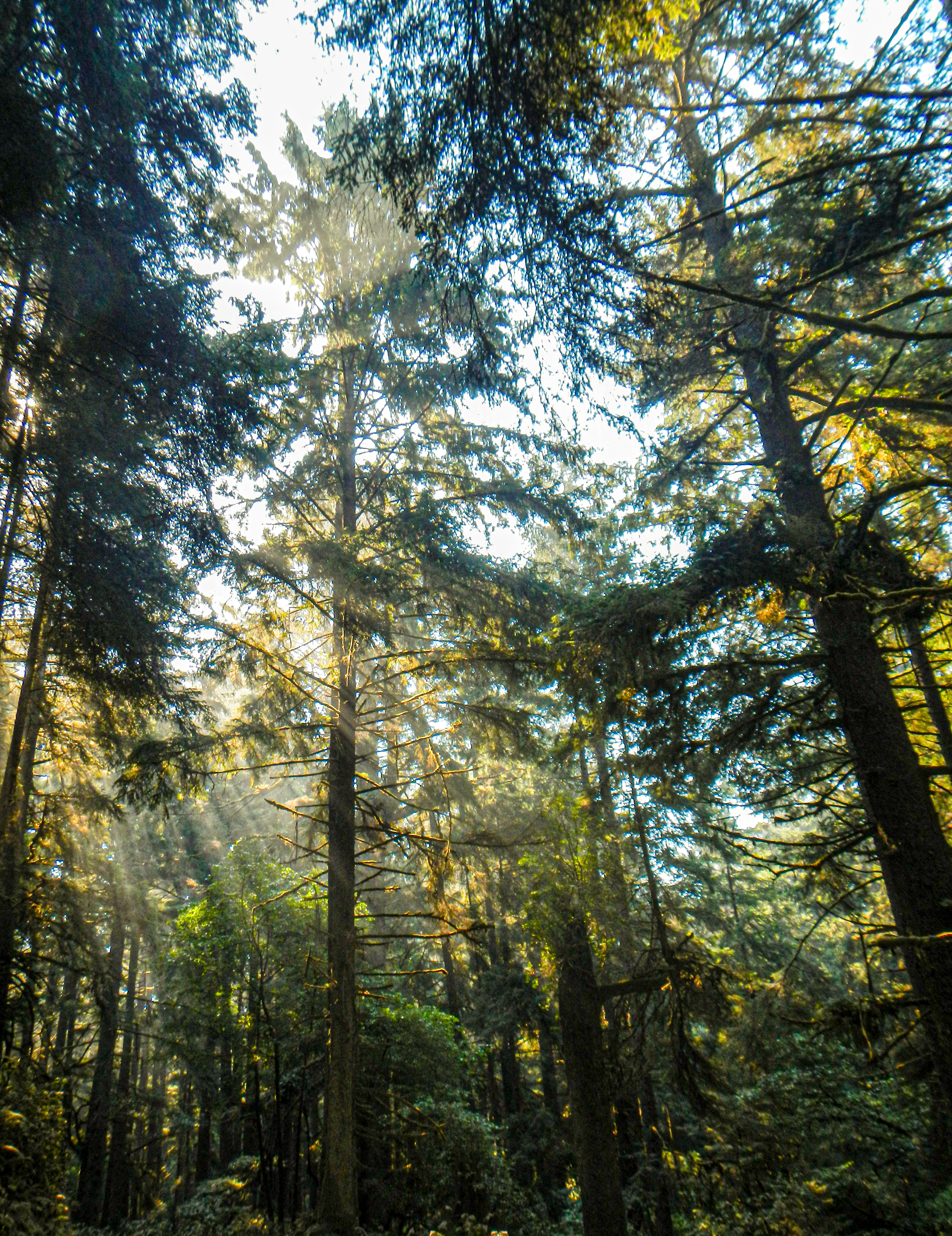
We've got eyes, built in lenses. They're a part of the trick, sending metaphors through the brain. We try to refine them to eventually get one right, see a tree exactly as a tree, perfect fit, our image the real. And we'll have found that piece. We'll put it on the table and start to look for those with the shapes and colors to fit against it.
We trick ourselves. Ours is always an opaque view. Smoothing our hands across this life, can't you feel the grain, yourself wanting to understand? Can't you feel the need to communicate? Can't you feel everyone inside you, the moons of Jupiter, supernovae inside you? Are you afraid that I'll come in uninvited? What if we weren't separate? What if there was no reason to change behind a curtain, your anxieties mine?
What's happening to us? We're very excited when the new computers come out, when next year's cellphones balance the weight of a fingernail but are hesitant to invite them inside. Who are we right now? What are these eccentricities of fingertip, these tools and technologies? Aren't these clothes a technological control process? Who are we, precursors to an overhaul of communication and transportation, politics and culture? Who will we become? Watch right now and wonder what phase of history we live through, these last years of words. The need to communicate comes from and returns to the currents of evolution.
We're riding the exponential of intricacy. The autobiography of the genetically modified will begin, "I was born a splice of intentions, the organism conceived by my formers," and that of the cyborg will be shared with anyone who wants to download. We're the inspired apes, cherished youth of the inspired rats, and next of kin to the inspired plants who've lived their lives staring at the sun so they could move the dirt—and move the dirt to make panels for the sun.
The pooling of consciousness, the union of perspectives—by drilling light holes in our skulls we don't defy our flesh. Our souls remain soil. We can comb the shores for silicon stones, carbon tubes, and pass ideas through them. From the garden to systems of ecology, our appetite for knowledge has not changed. We are organs of pursuit. What is the limit as human communication approaches infinity? What inventions will we weave with microchips and math? Will the bipeds of the savanna be forever lost in the buzz of binary code?
I remember childhood. I associate it with grass—grass and sun or grass and summer evening barbecues out back. I remember a first kiss, a first smooth tongue on tongue. I remember humanity: bananas in the marketplace, waving at a friend over produce. I remember being human. What of this is changing? Are we saying goodbye to a species? Are we saying goodbye to the us we've just met? Generations spawn chutes to new blossoms. How much longer will we speak our thoughts as sounds? How many more pages of handwritten symbols? The print right here is artifact. I remember being human, solving math problems on chalkboard cave walls. Our languages are evolving out from under us. Bury your journals in the yard. And litter—one organism's trash is another's fascinating ancient find.
I remember being human, picking bits of apple from my teeth. I remember flesh needing flesh, making love then calming, the slow, grateful experience of mouth in mouth. I remember being human, making love, then giving birth, being born from an aqueous womb, a mother born from a mother, passage of fluids from life to thirsty life, the liquid child from the parent ocean.
The rotting posts of what used to be a dock are now valuable perches to the seagulls. Across the bay is a reach of barns. Their weather-torn shingles are modernized by the open-armed wire towers, the buzzing messages quiet to the wind and lap of the marsh water.
A calypso band plays back in town, accented here by the birds and insects. The wind brings the trumpet over the steel pan and bends the tall grass toward the east. A hawk hangs in an offshore breath and is hungry for the meat of the sounds.
A channel of flaming brush walks me along the canal. Strokes of yellow and purple glint aspects of the sun. This dirt path leads to the bay, a view of the dune drive which leads to the shore, which opens to everything. The wind smears the water into waves and moves my hair in the patterns I see in the fields.
To the birds on the land bar offshore, there is no calypso band. And as the wind picks up, I can barely hear. I take the path back toward the land and take a turn toward town. I pass a rust yard to the G street hill, exchange hellos with the porch-sitting owners of an art studio. The sounds of the festival are louder.
Here, where the steel pan is fresh on the air, the people are the field-waves, blown by sound into a pulse. The plaza is a throb as the seventh resolves. My body melts into the rhythm, and I merge into the dance.
Yellow clovers, bursting greens, deep redwoods, a fungus sun opens. Its broken veil hangs. Wands of maple leaves tip in maroon. Madrone throw pink blossoms off a hill. We walk below, a gulch, an ocean of disintegration and its ideas of form, this duff and bark mulch liquid valley of sunlight compositions. We hear the creek but haven't seen it. Our skin drags limbs as we pass. A done leaf rests in the crook of forking branches, worked and fallen. Its ghost is a brown network of veins, a frozen slice of the fractal reach. Fractal trees beam above, taking sun for a reach of layers, a reach of a thousand years, a thousand over the denominator of all time, an infinitesimal burst from the earth.
At the creek we climb onto a rock carpeted with moss. The water slows to form a pool. We take a small piece of the larger stone and throw it in. Waves overlap waves. Cultures overlap cultures. The smallest strands vibrate in modes. And here a splash looks like a human. Every time we eat, we build ourselves of other beings. We pour the canvas of life from a glass, or drink it from a stream, and it passes right through into the river and back to the ocean, where it is night, and the moon is a third, enough to see the pocked land and grey dunes. It's right there, an eye swim away, a spherical world whose curve I see complete over the reflecting bend of the liquid horizon.
Tectonic slabs force pillars through the sea. Starfish and anemone cling to wave thrashed stones through the foam and white repeating grind. And we stand on shore, the tranquil water, borrowed and sculpted, skin of fabric sand, liquid loom, sun the craft hand. We're topsoil sculptures whose surface duality hides the tunneled inside. Into, worked, then out of, systems in the enigmatic evolution toward—
Behind the enigma is the equation, the pattern that pushes the spiral of the nautilus. It draws our eyes, defines our skulls backward and under. It repeats in our minds, through the casing of water, and out stream proteins onto the shifting sands of this beach. Mussel shells on shore ease into dissolve. We'll be the dirt again when rain falls through the smoke of our cremations. And dirt will realign, form to stone or bark drawn line. Everything is working, light of sun and the phases of sea.
